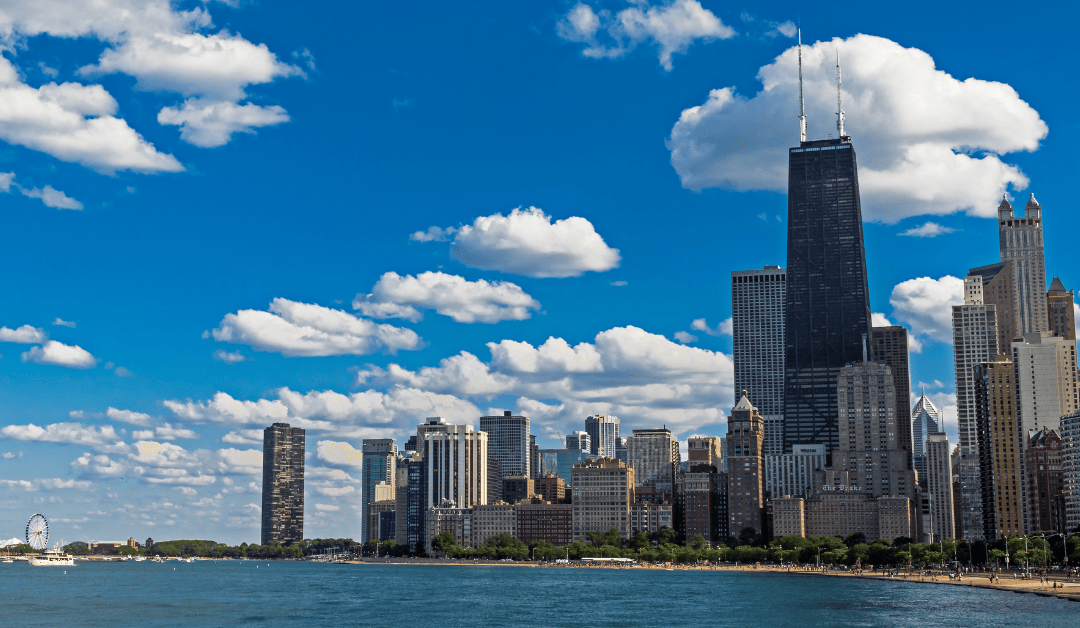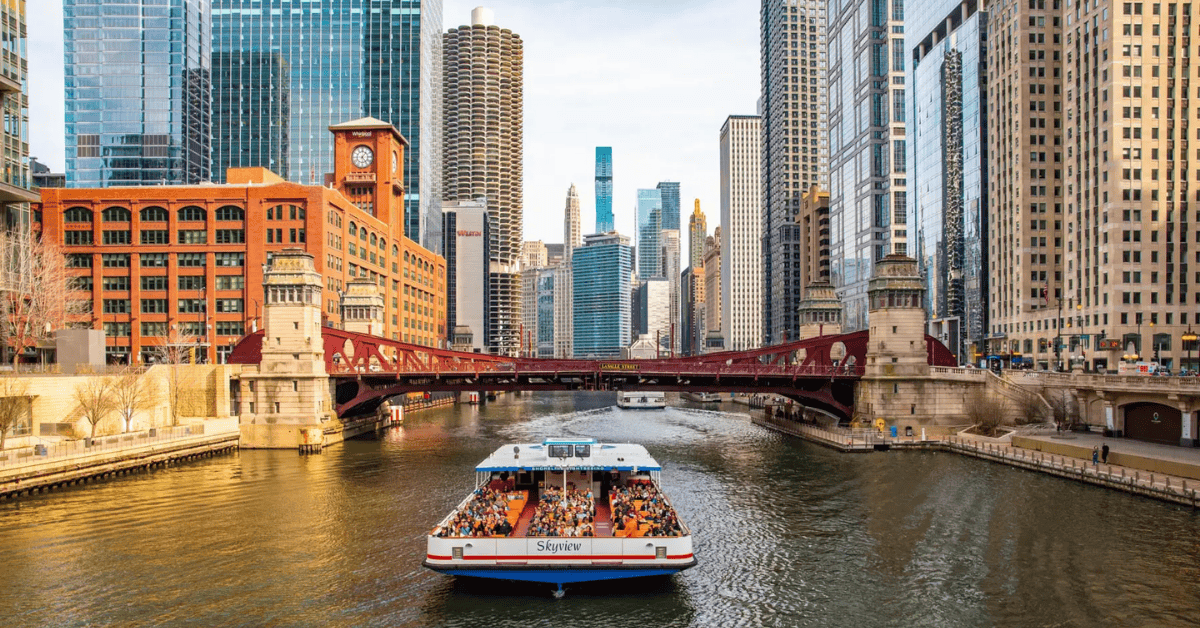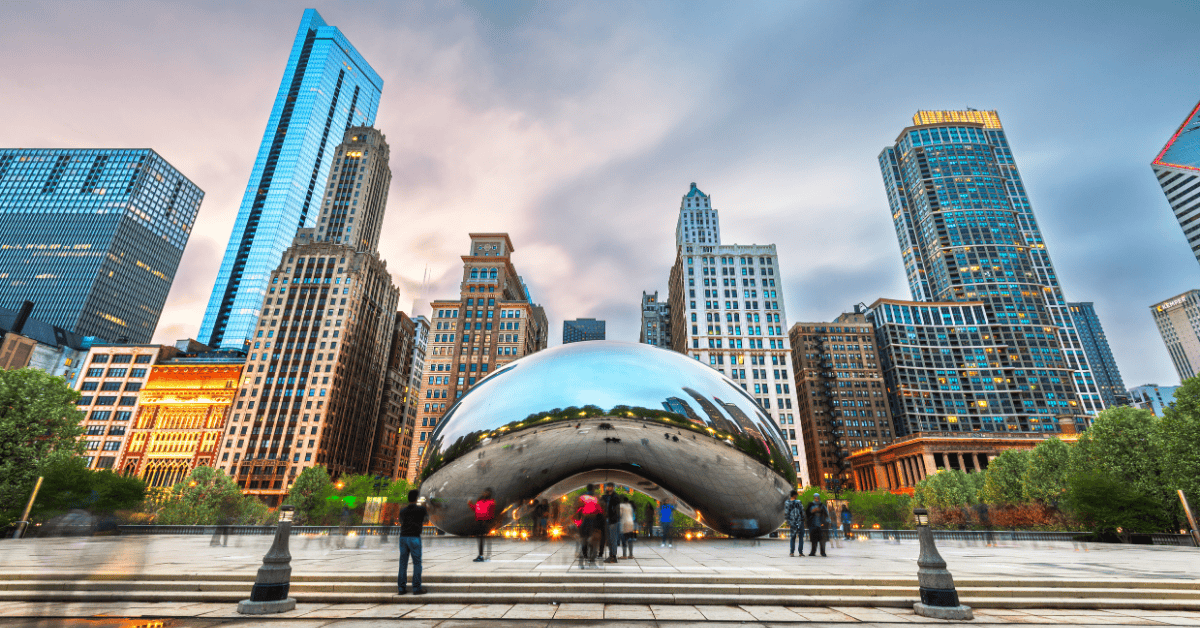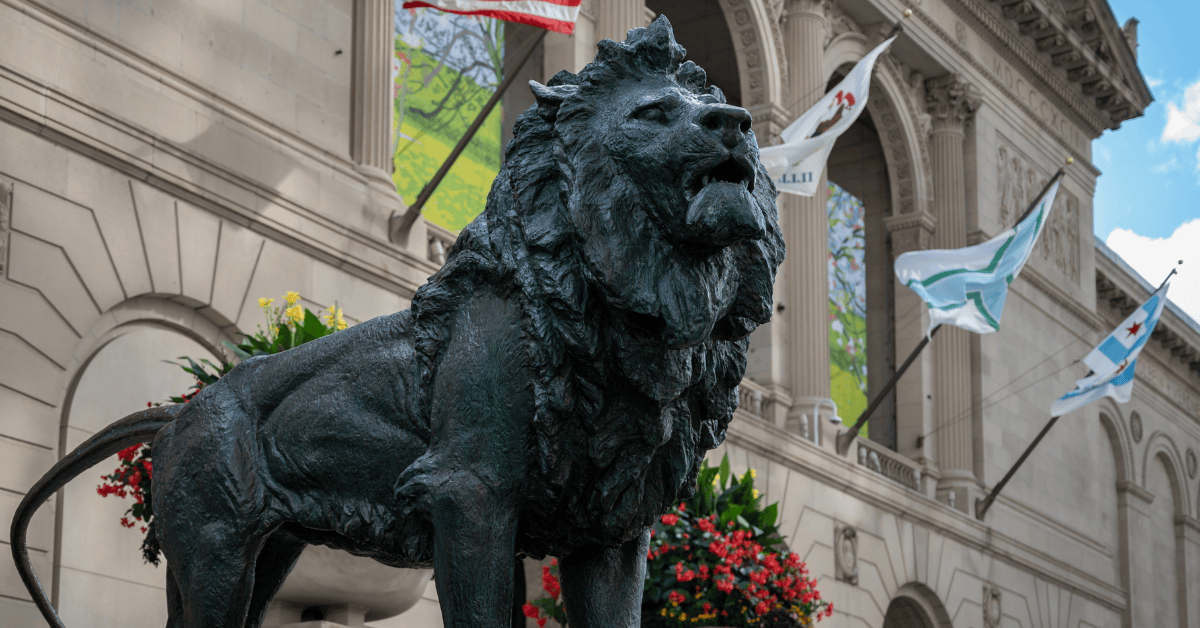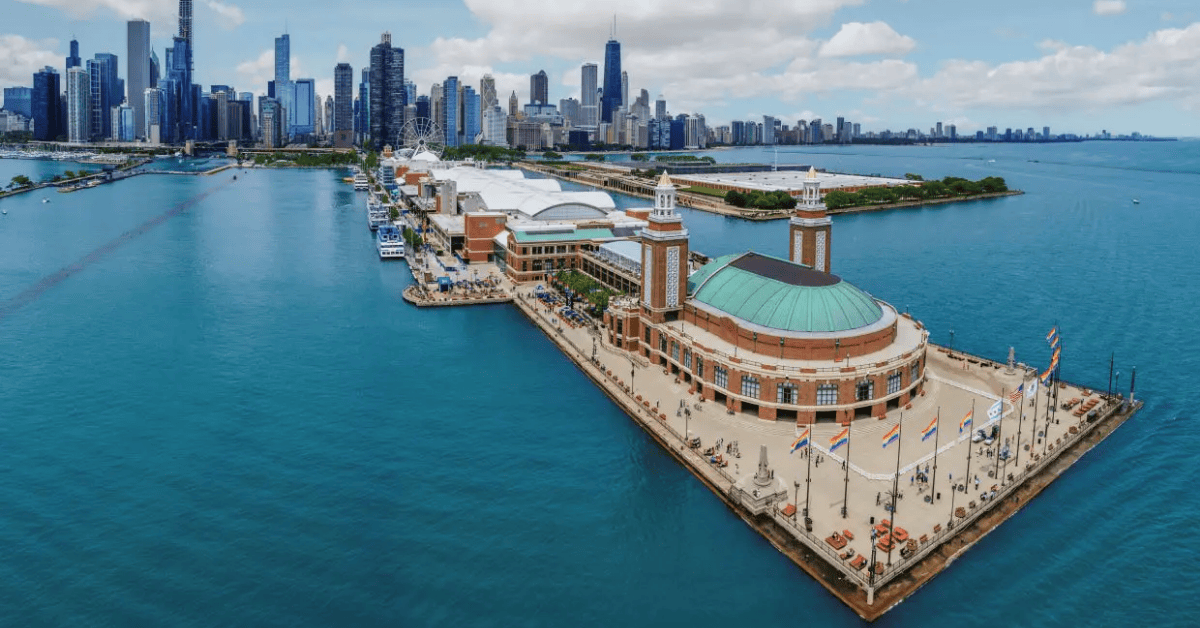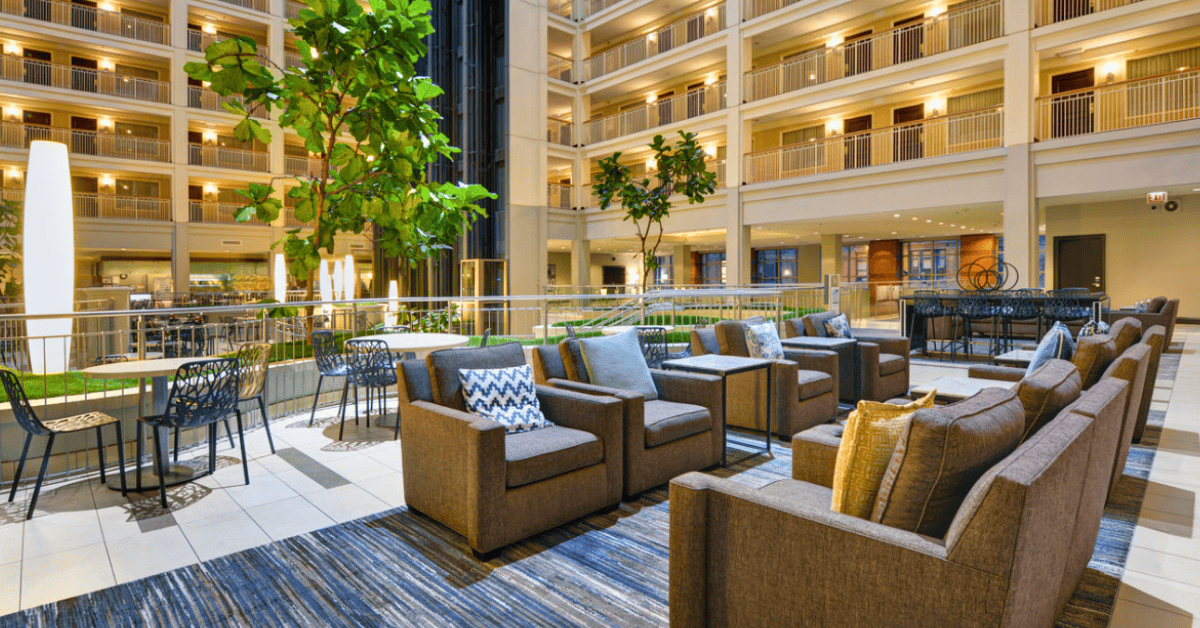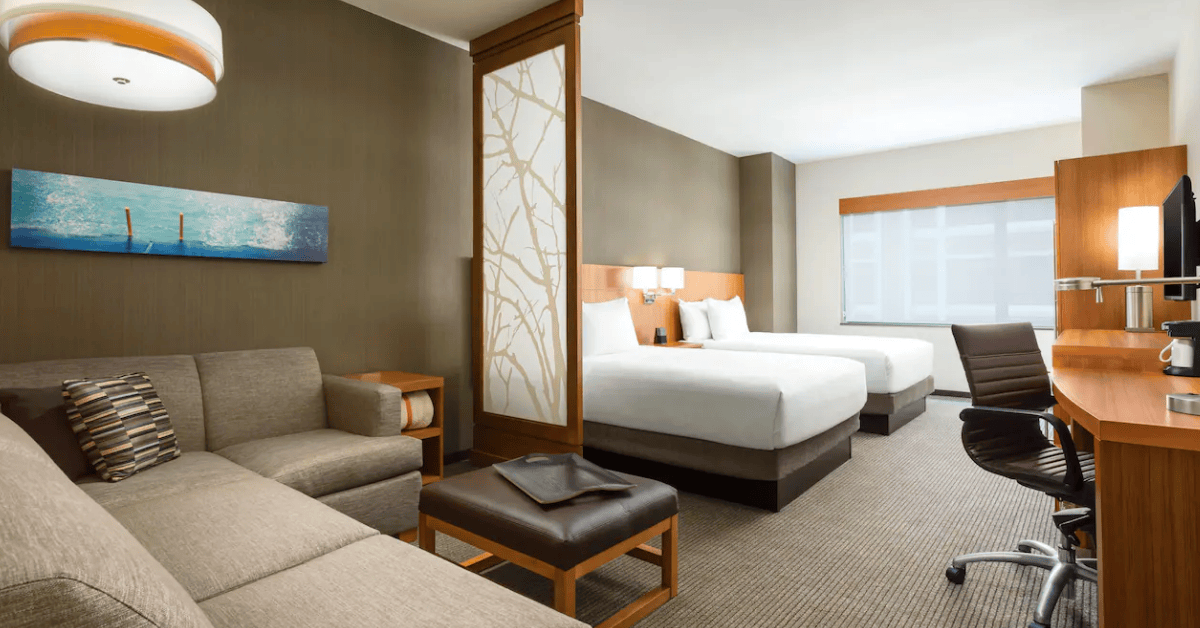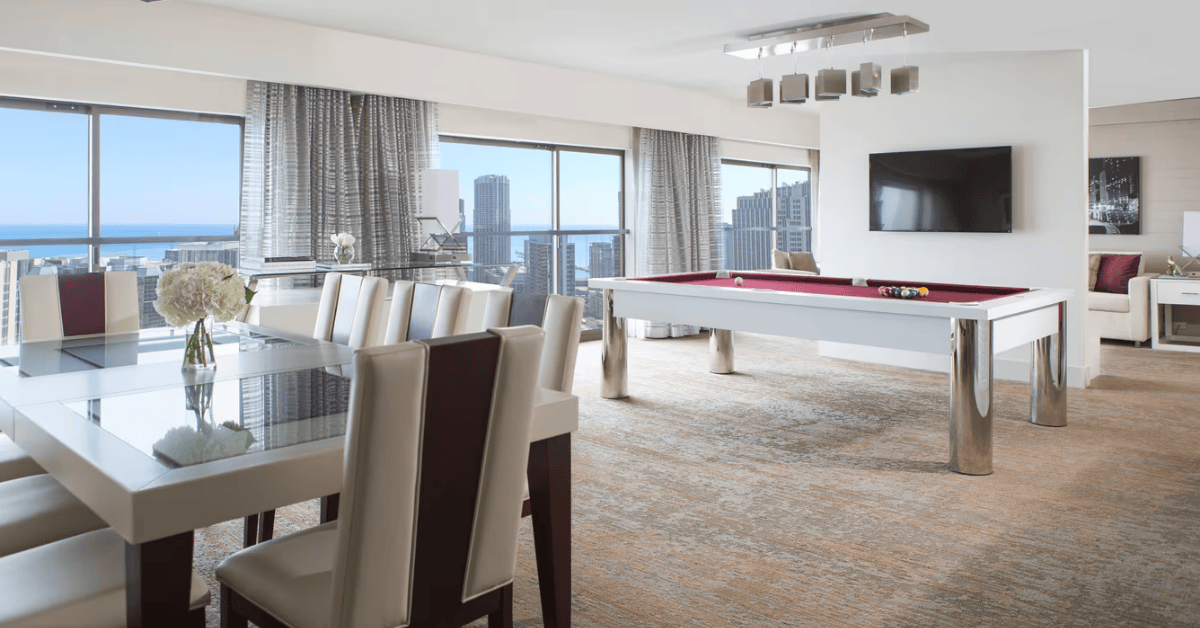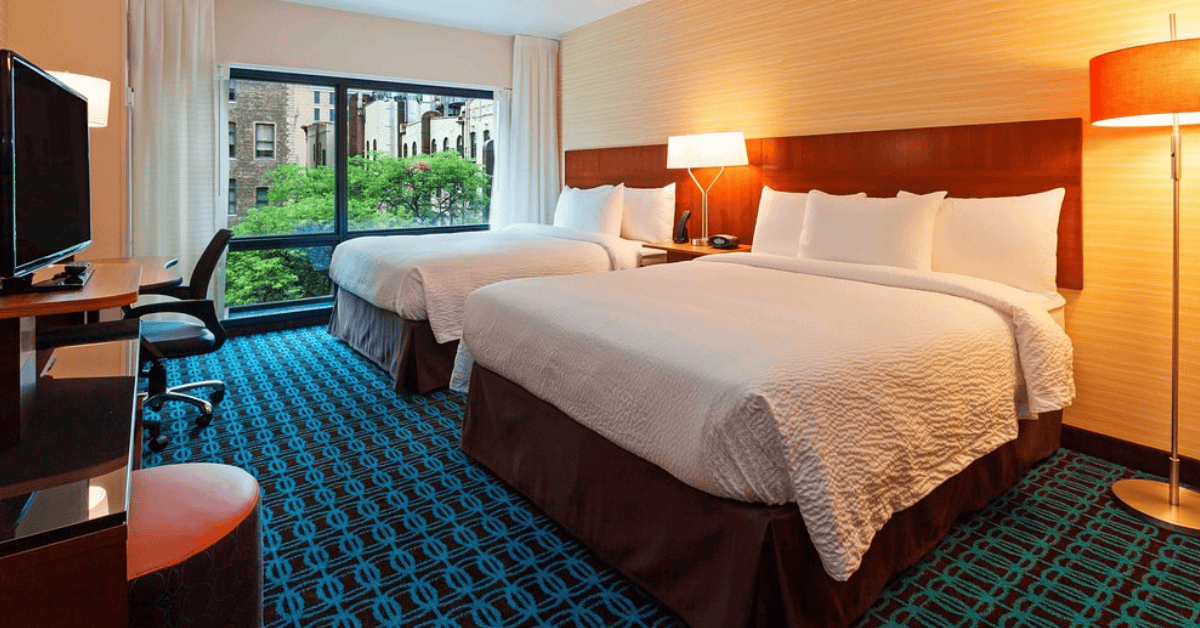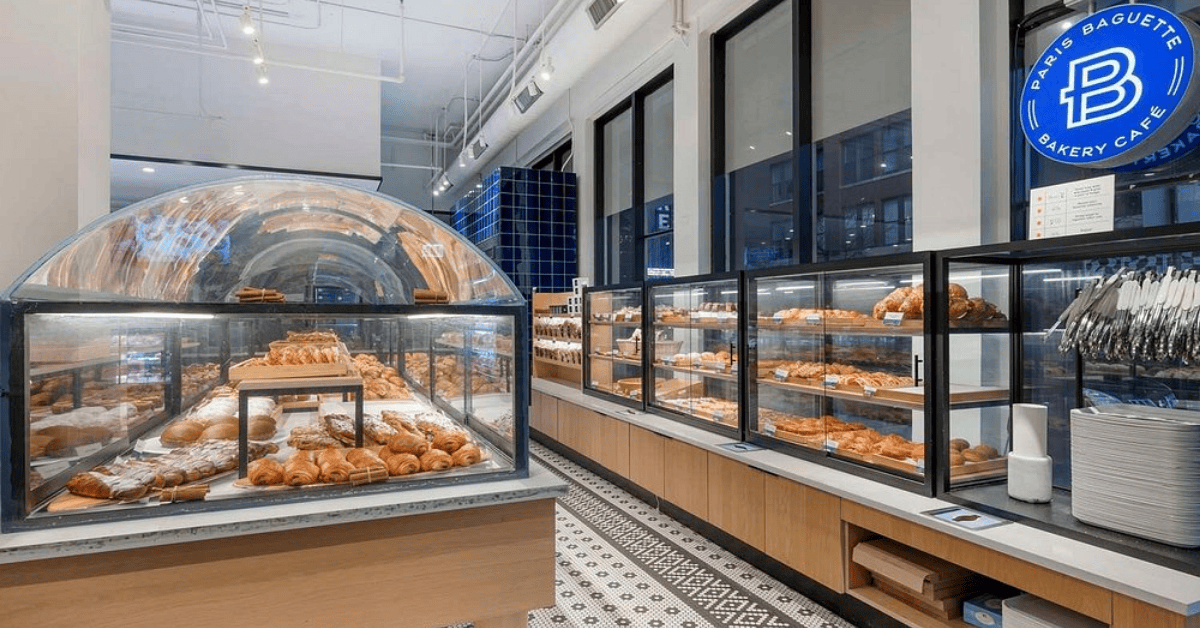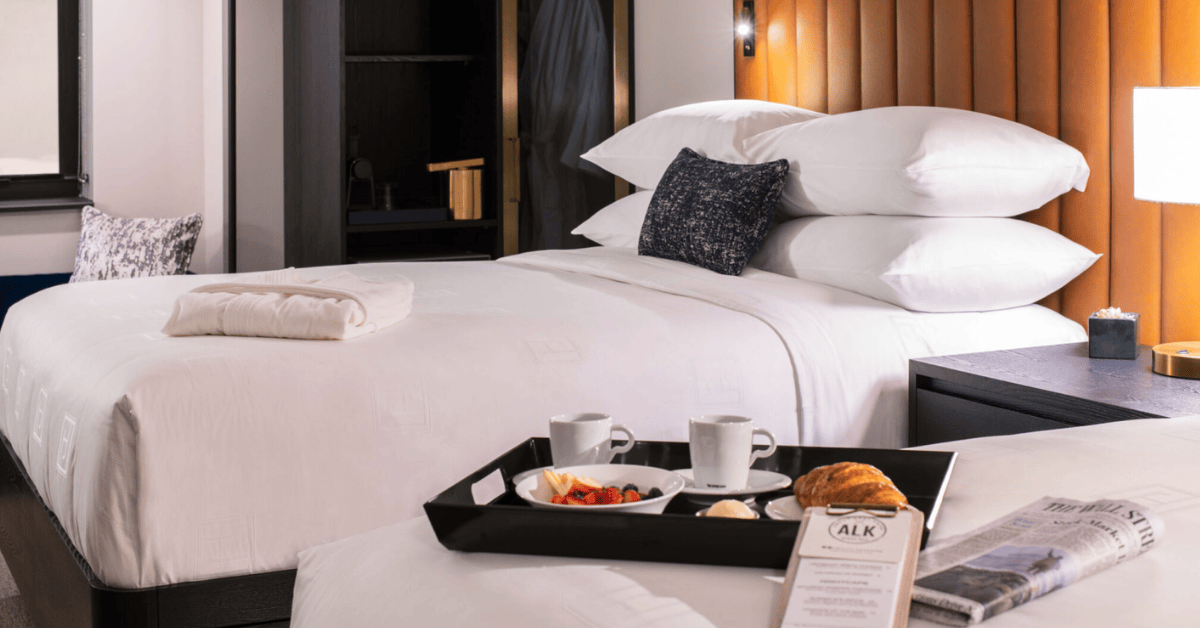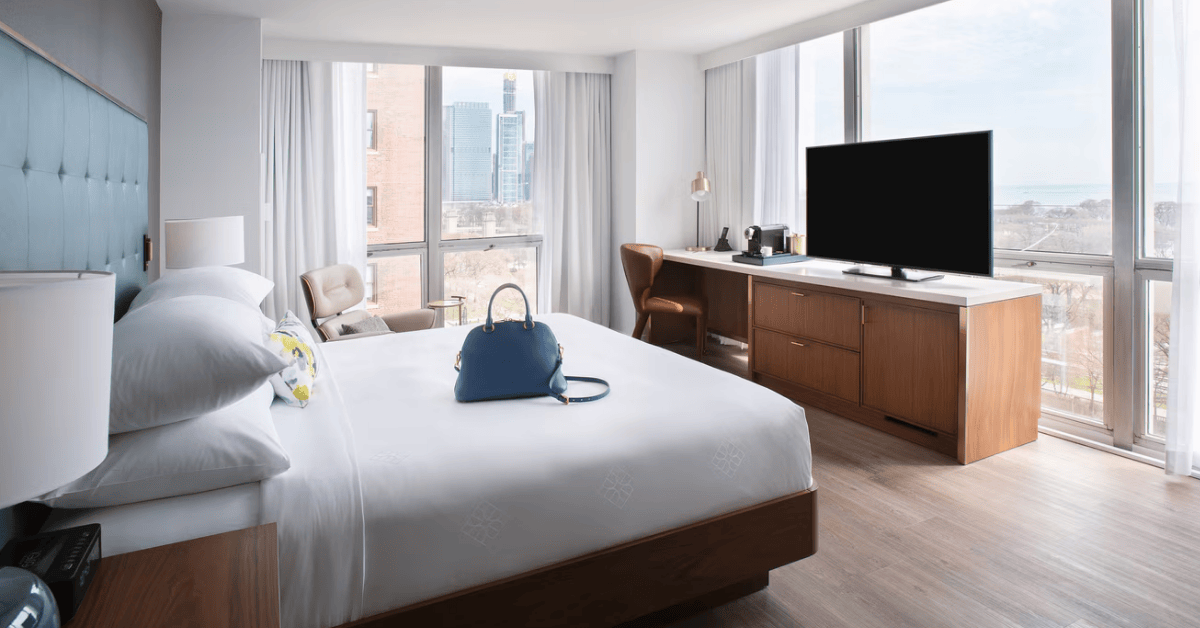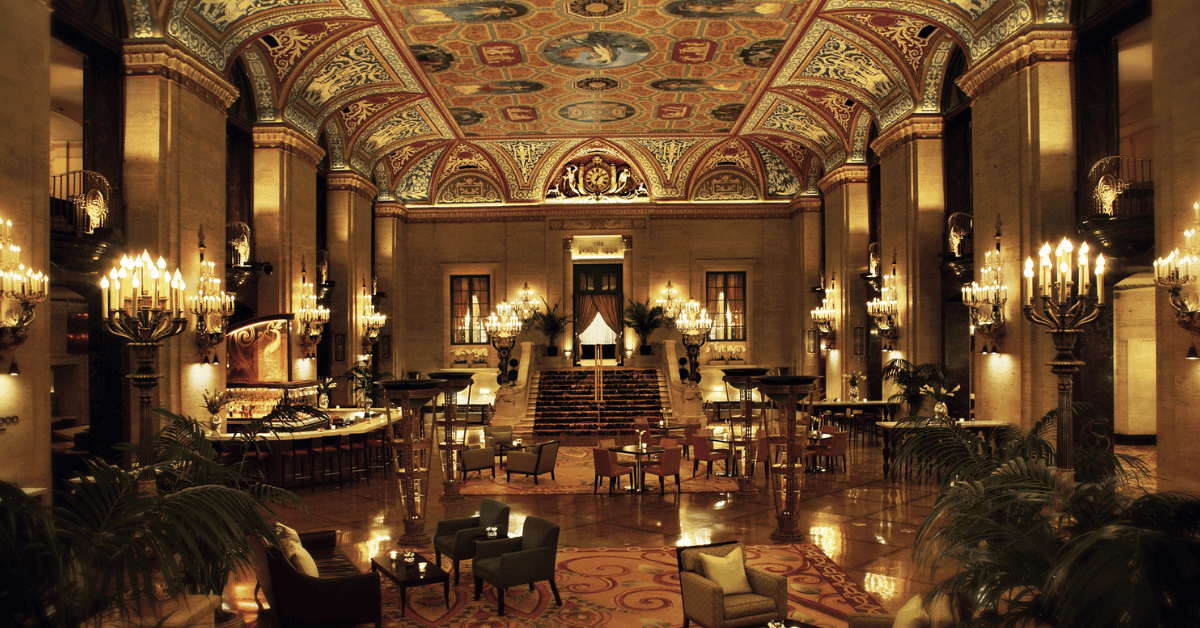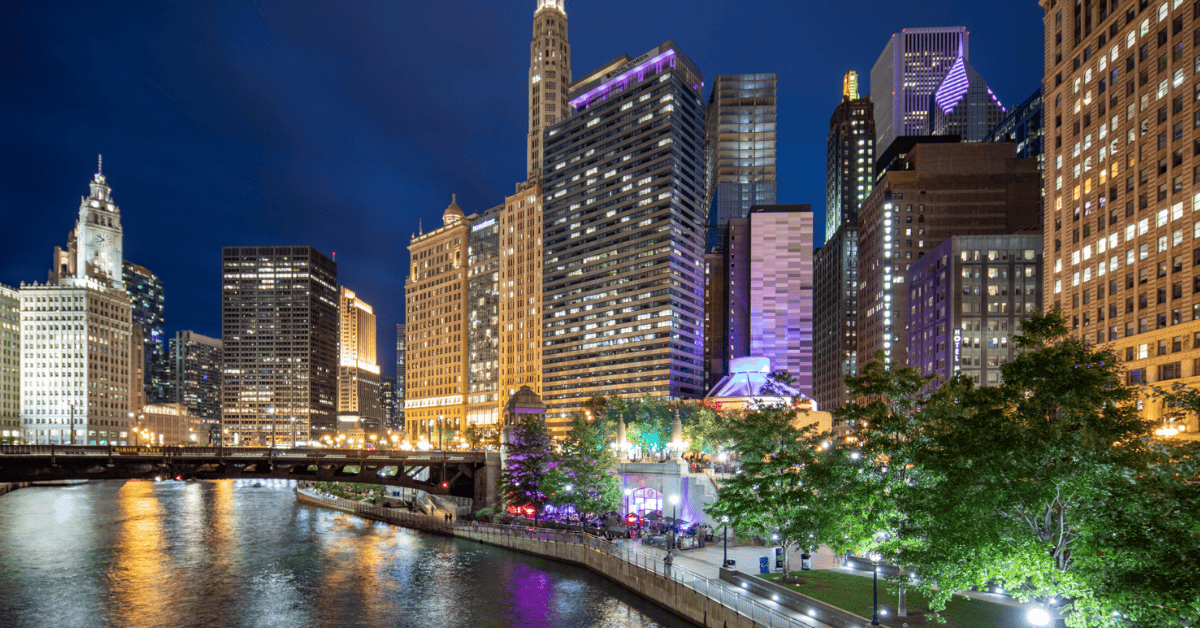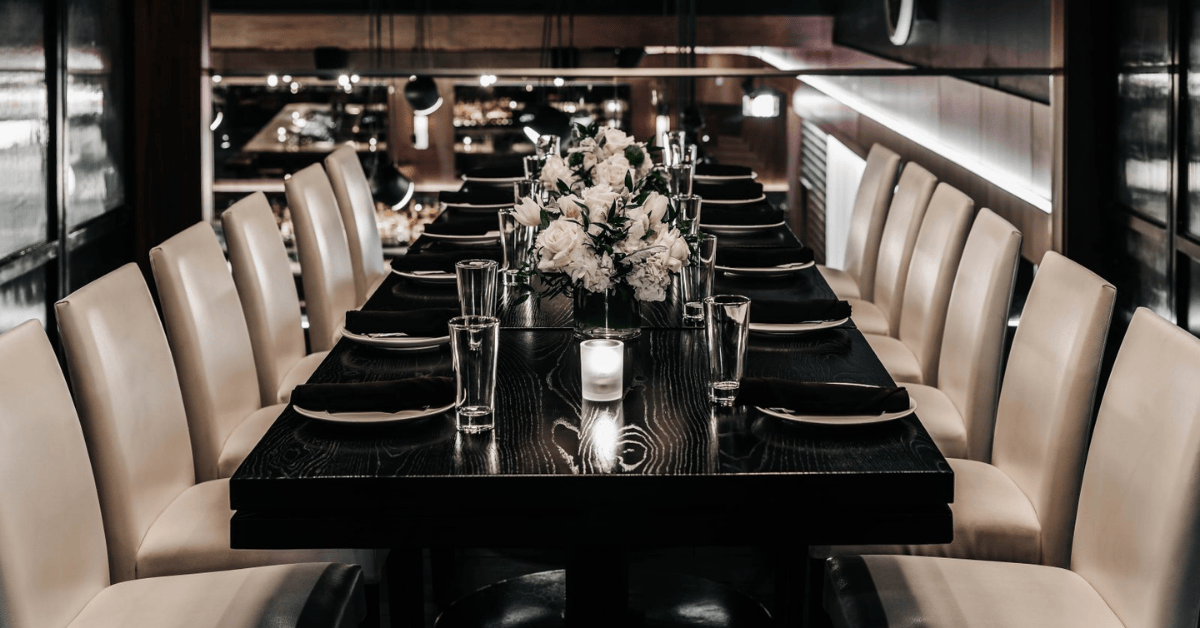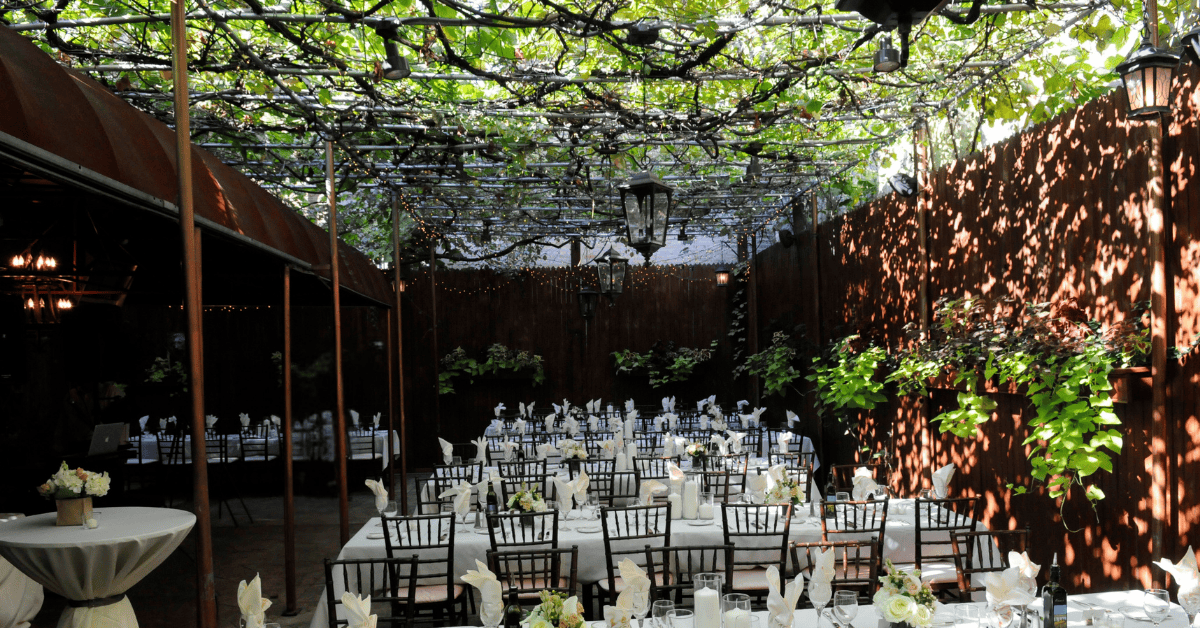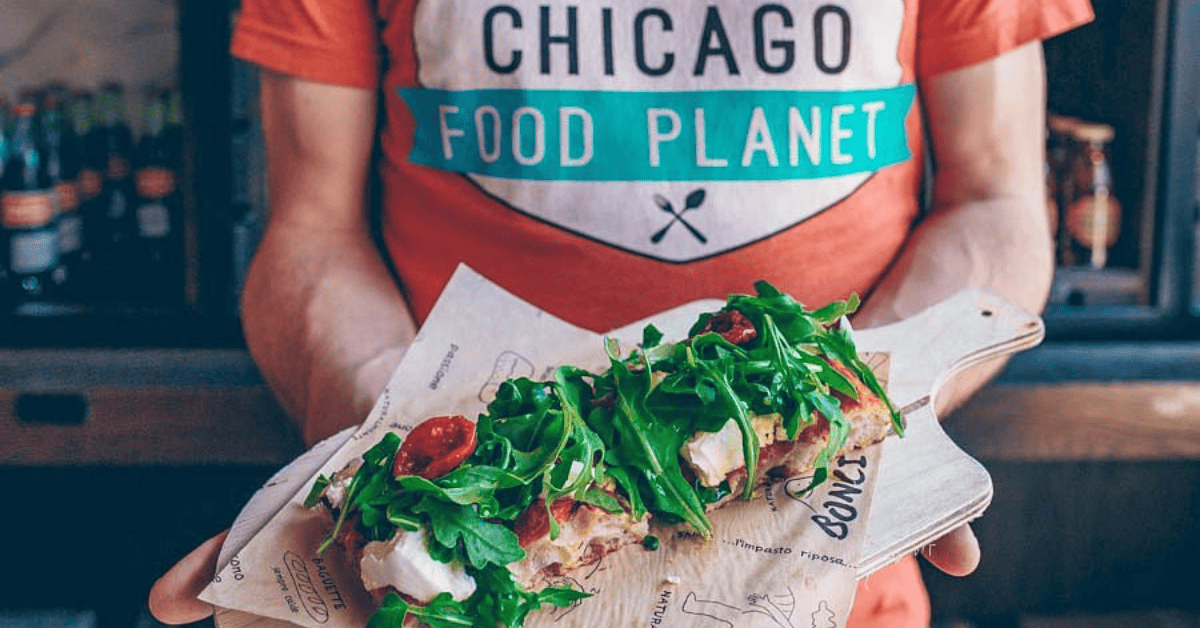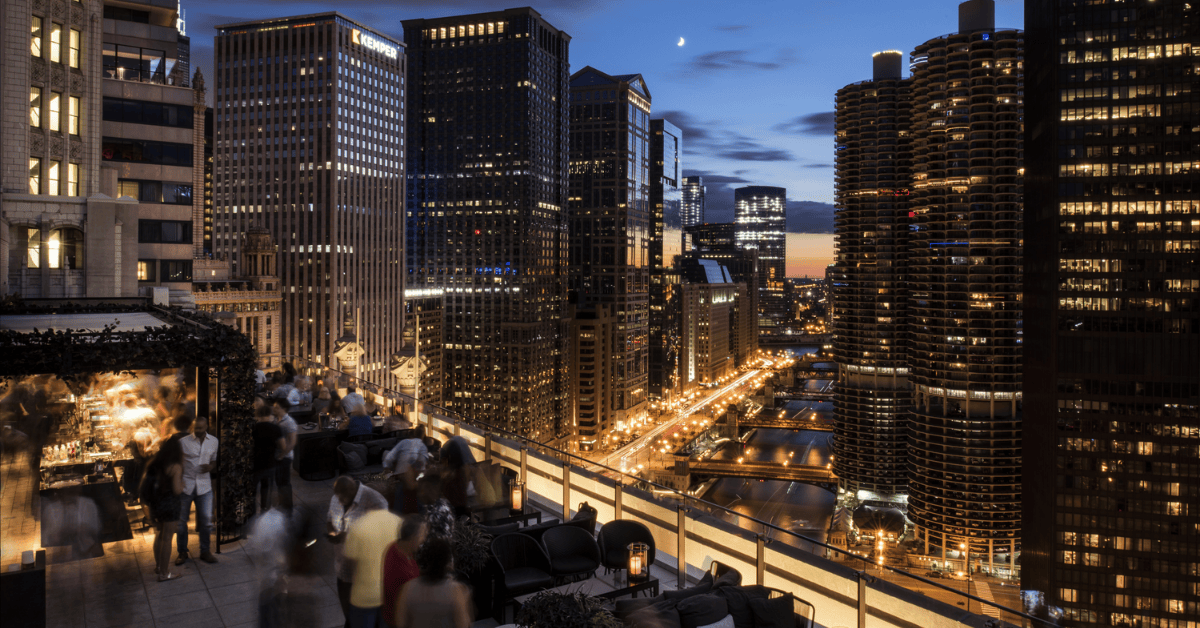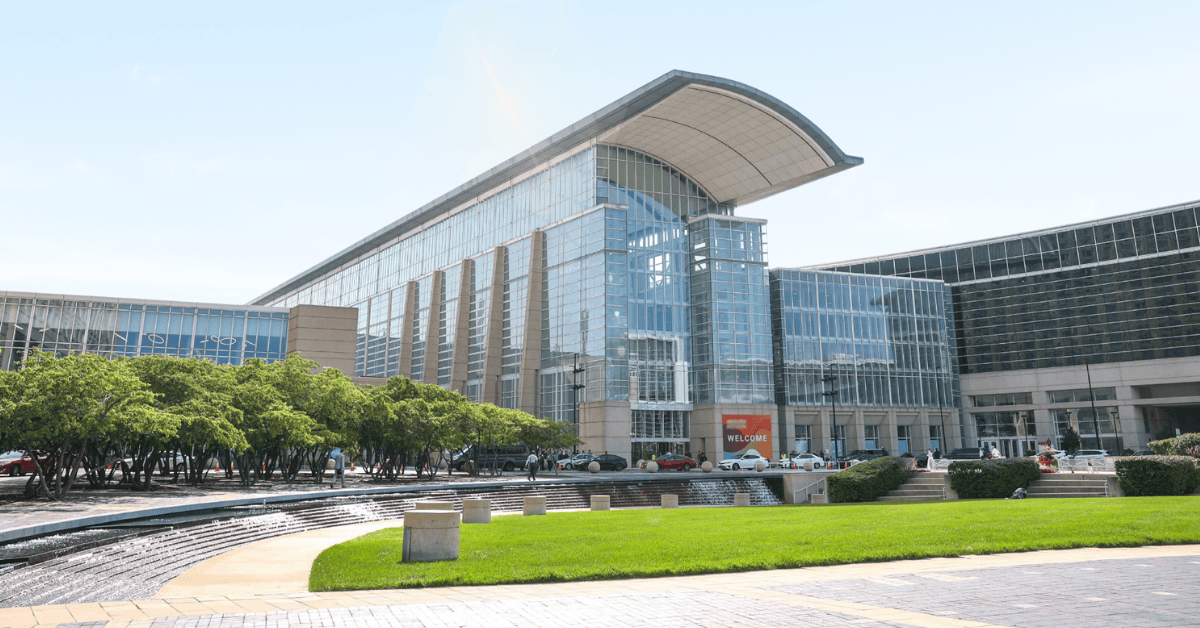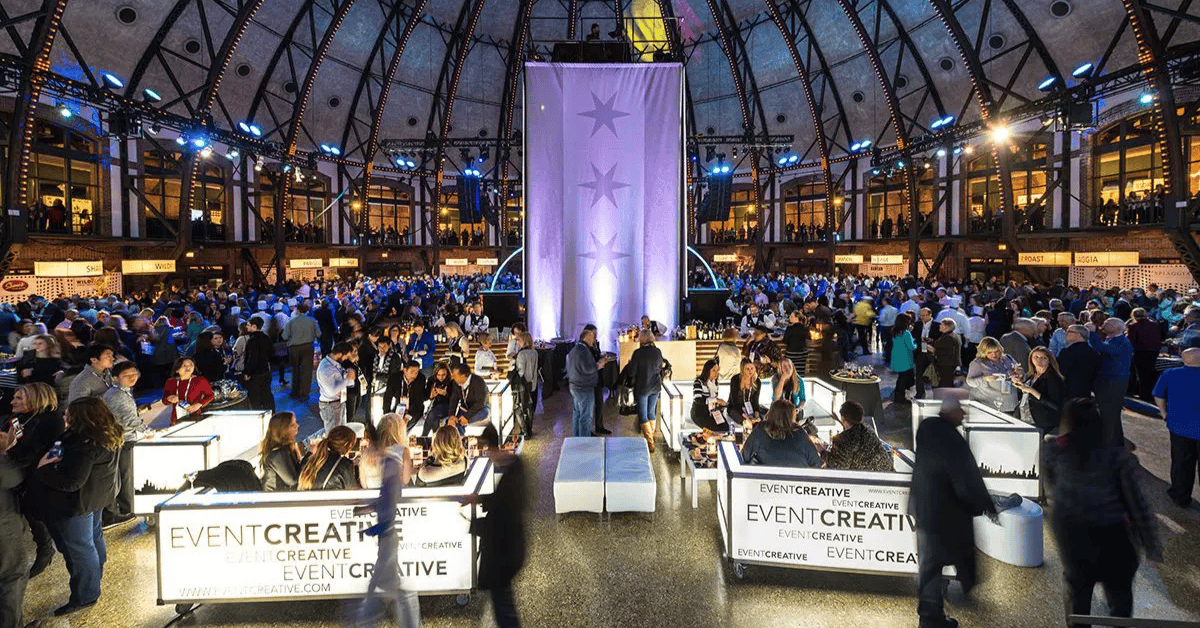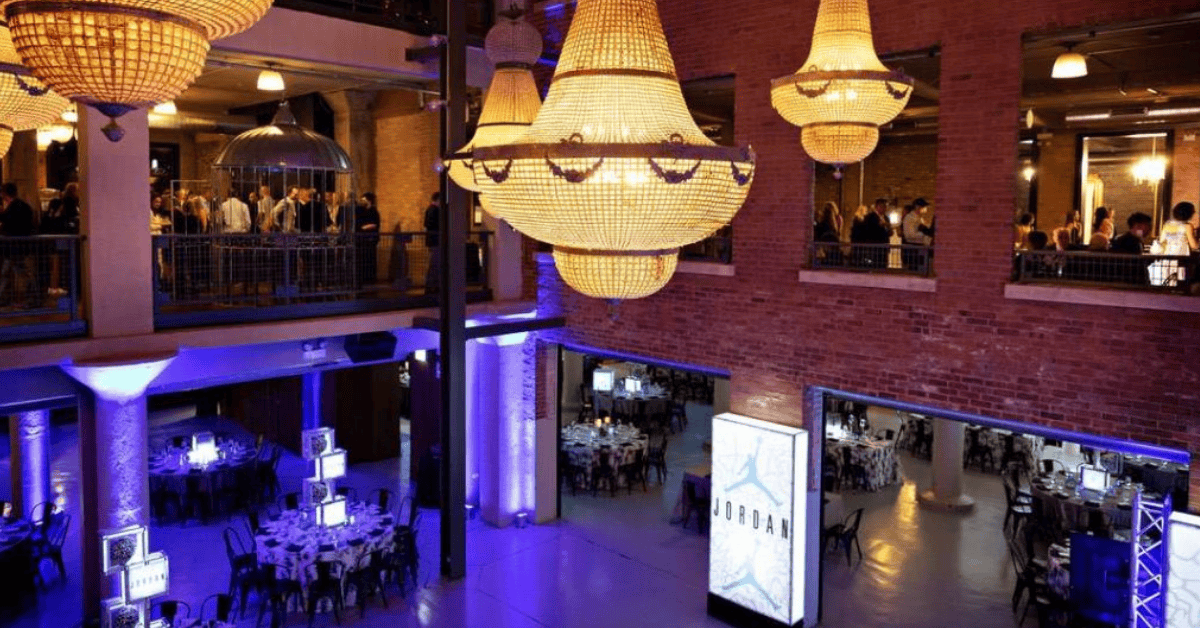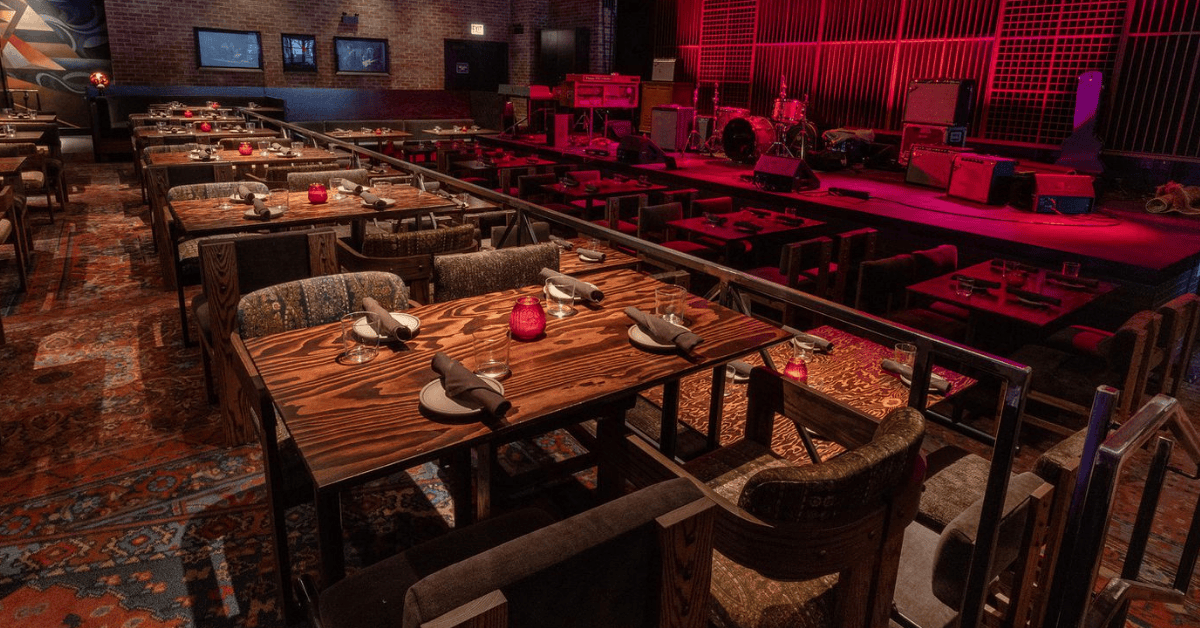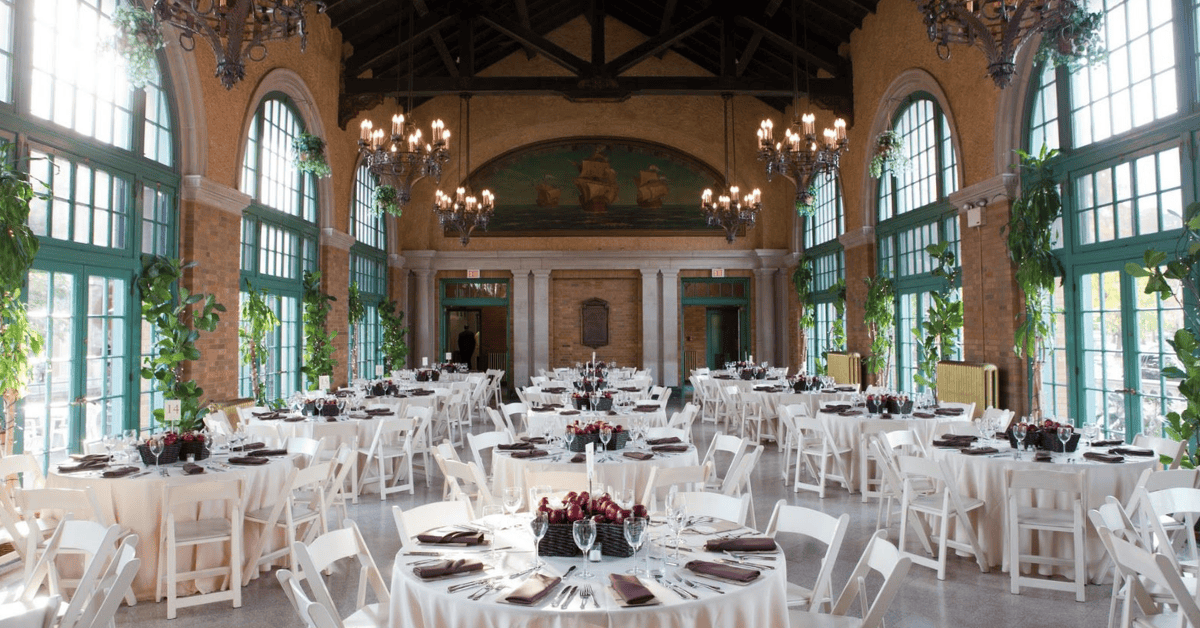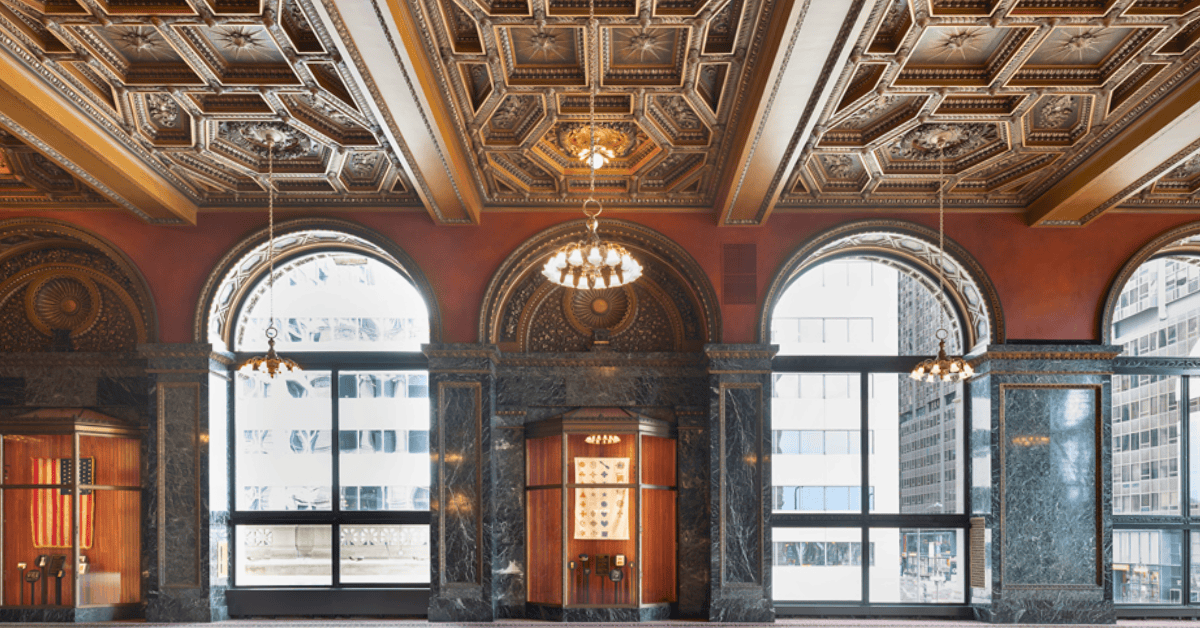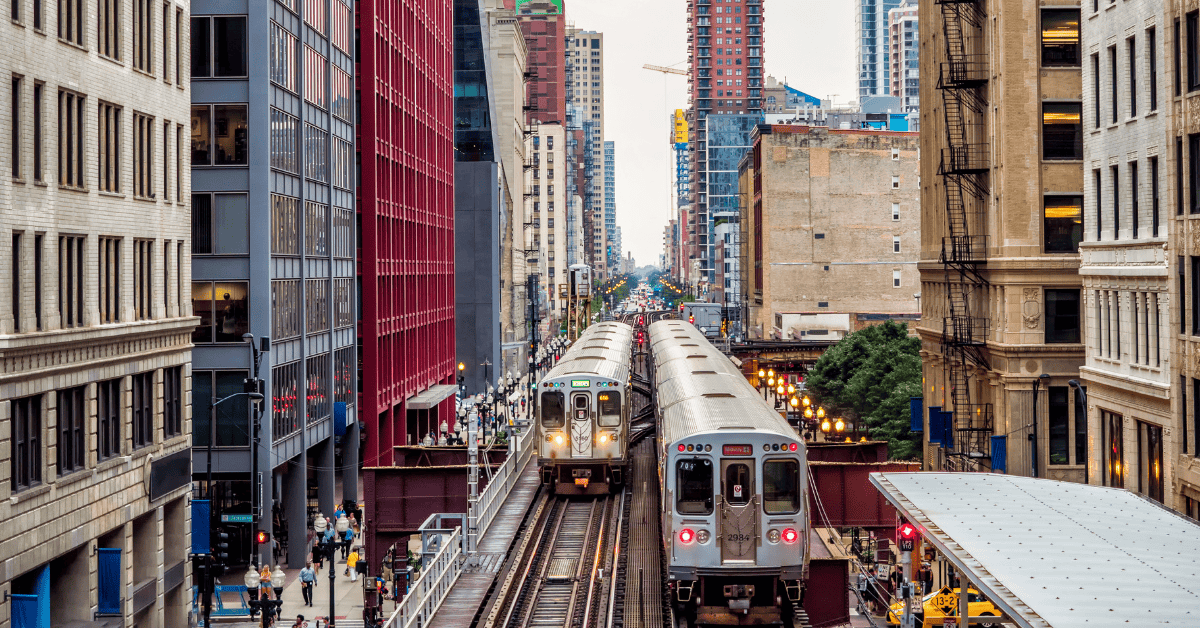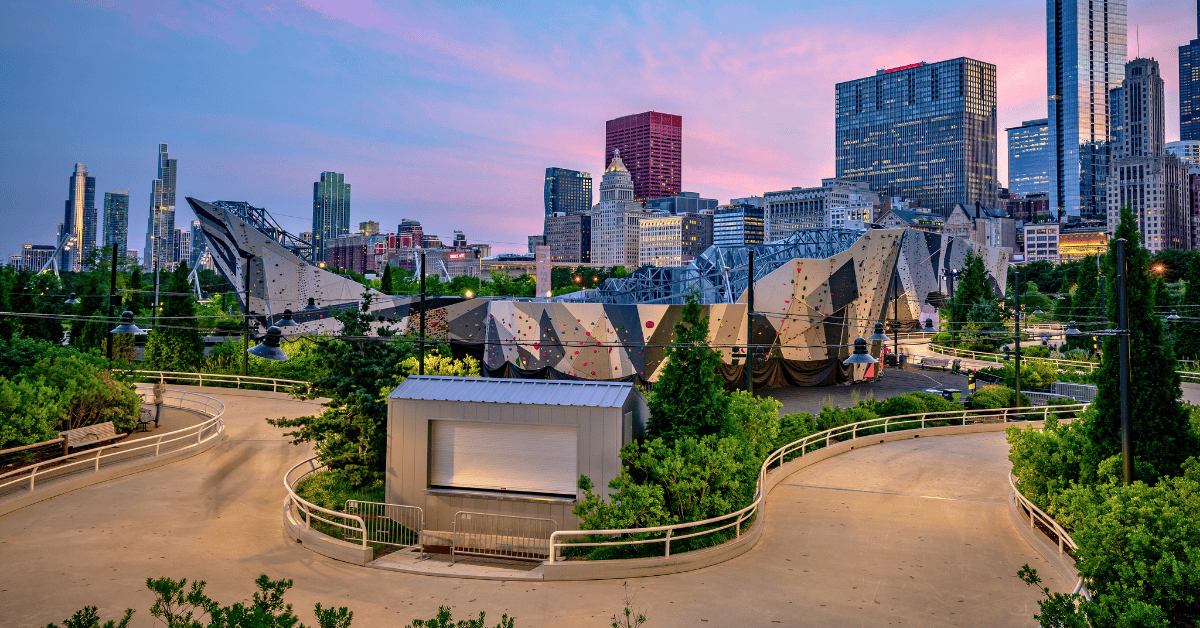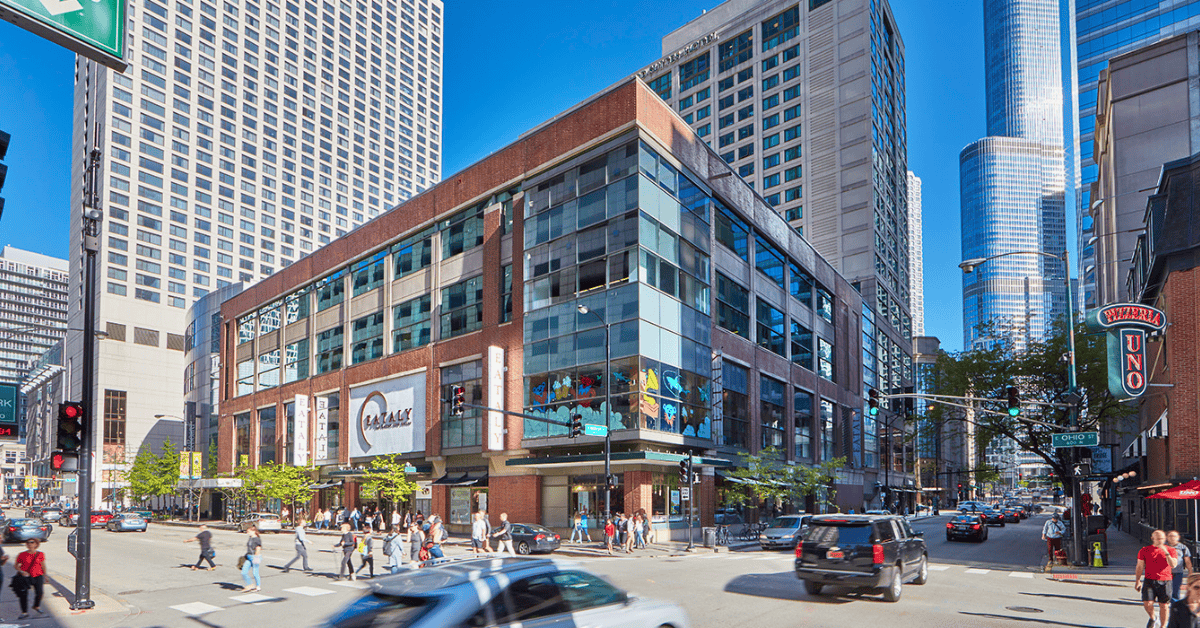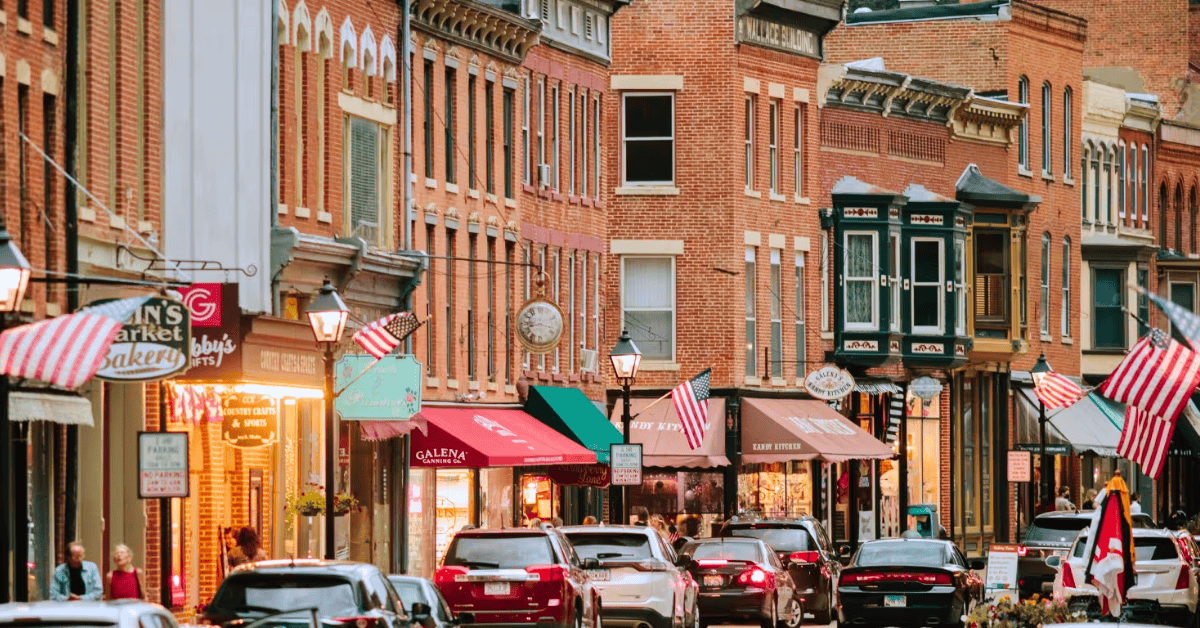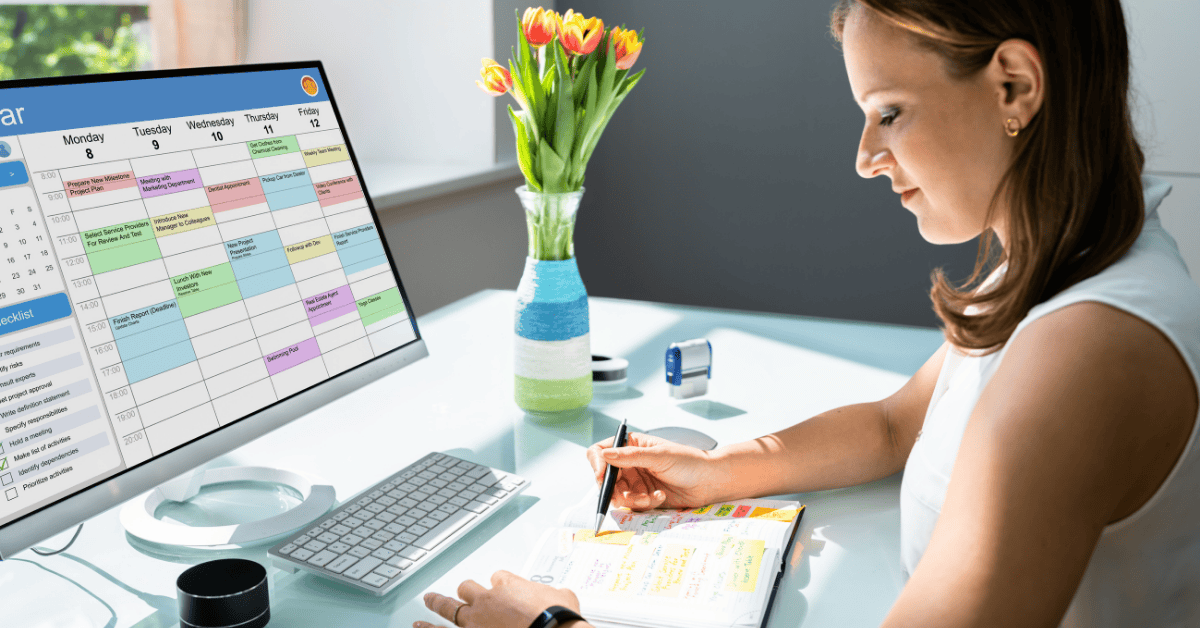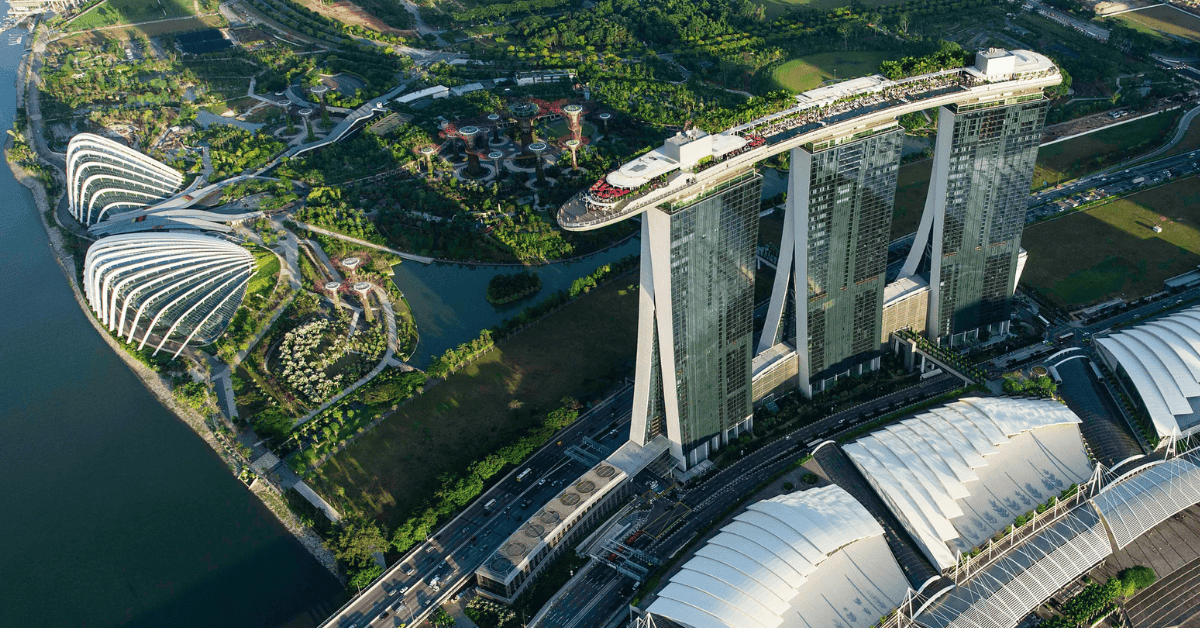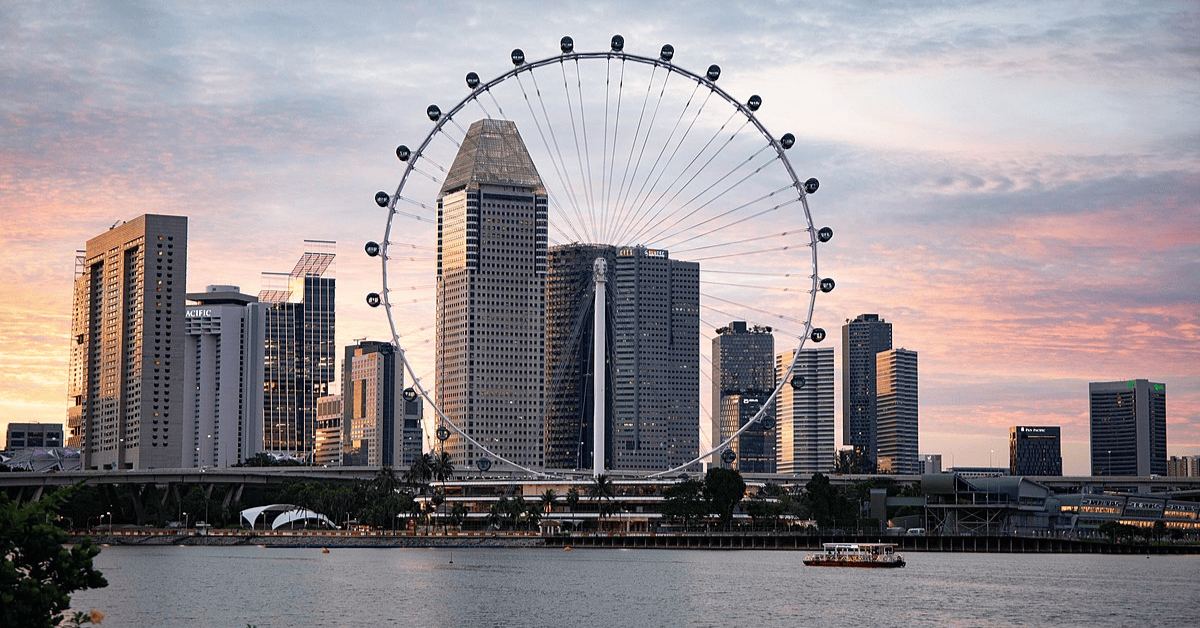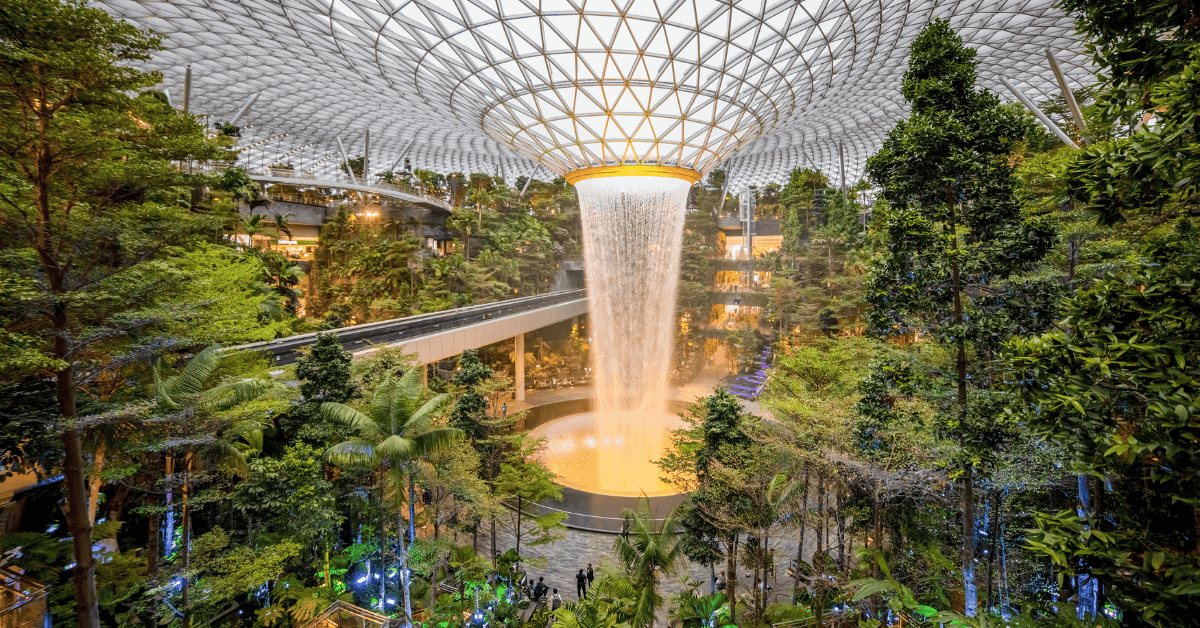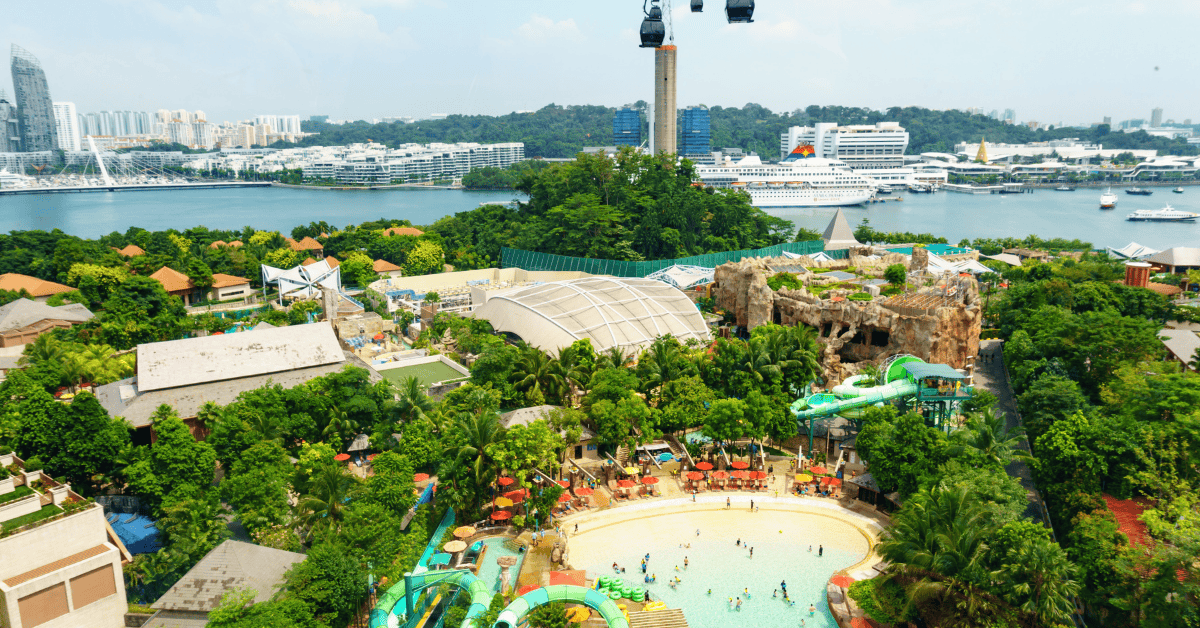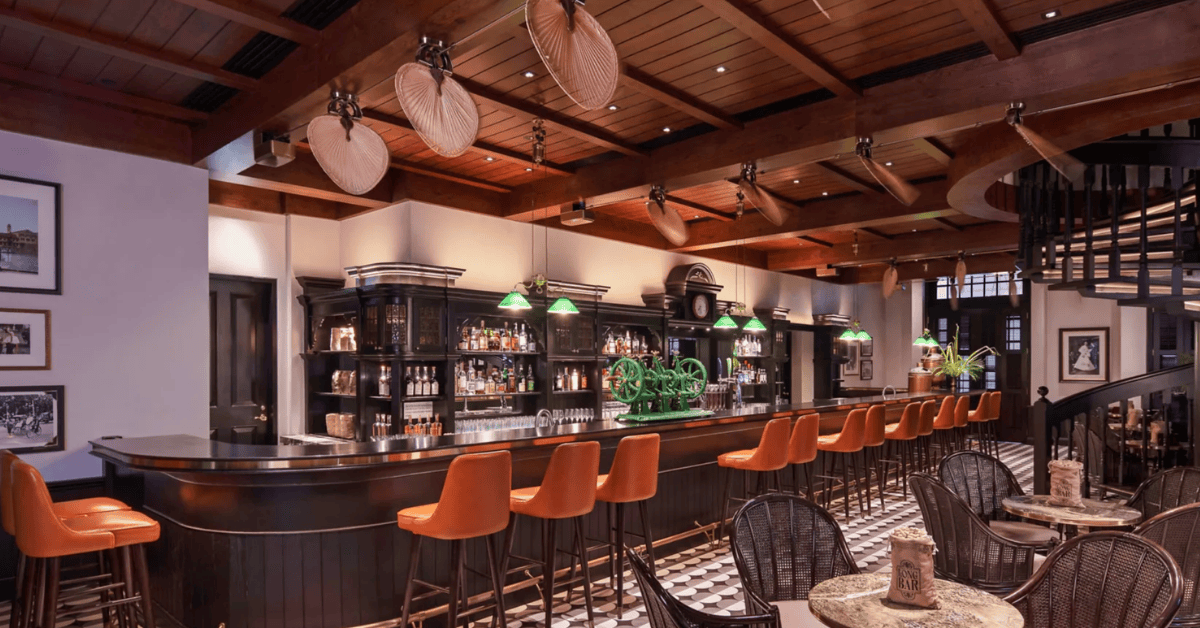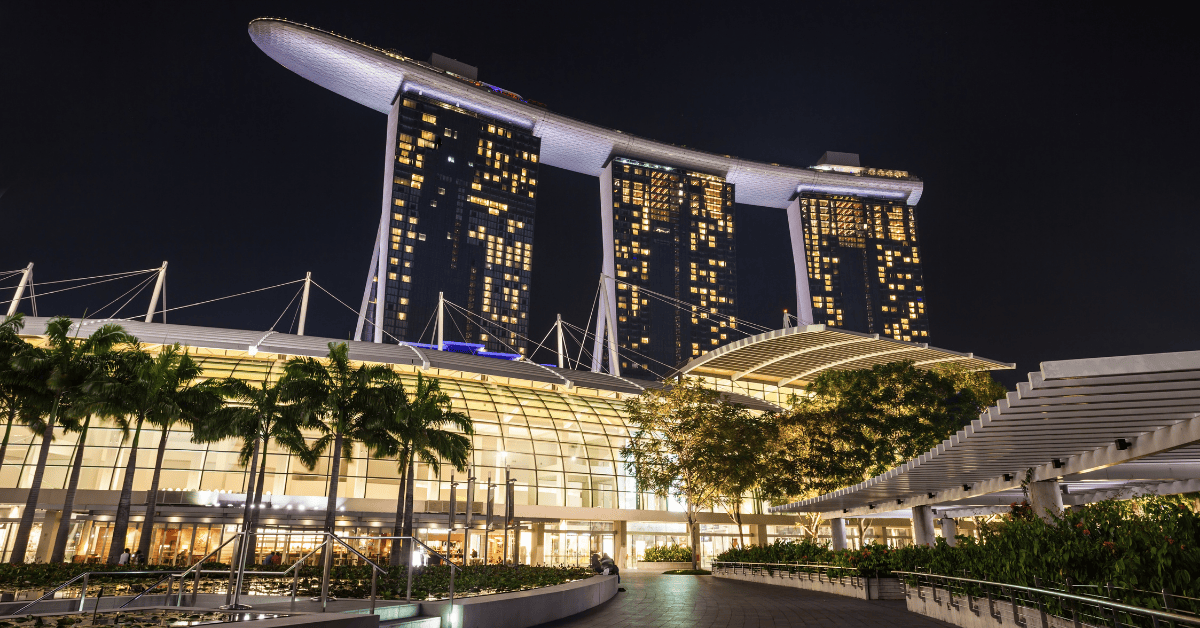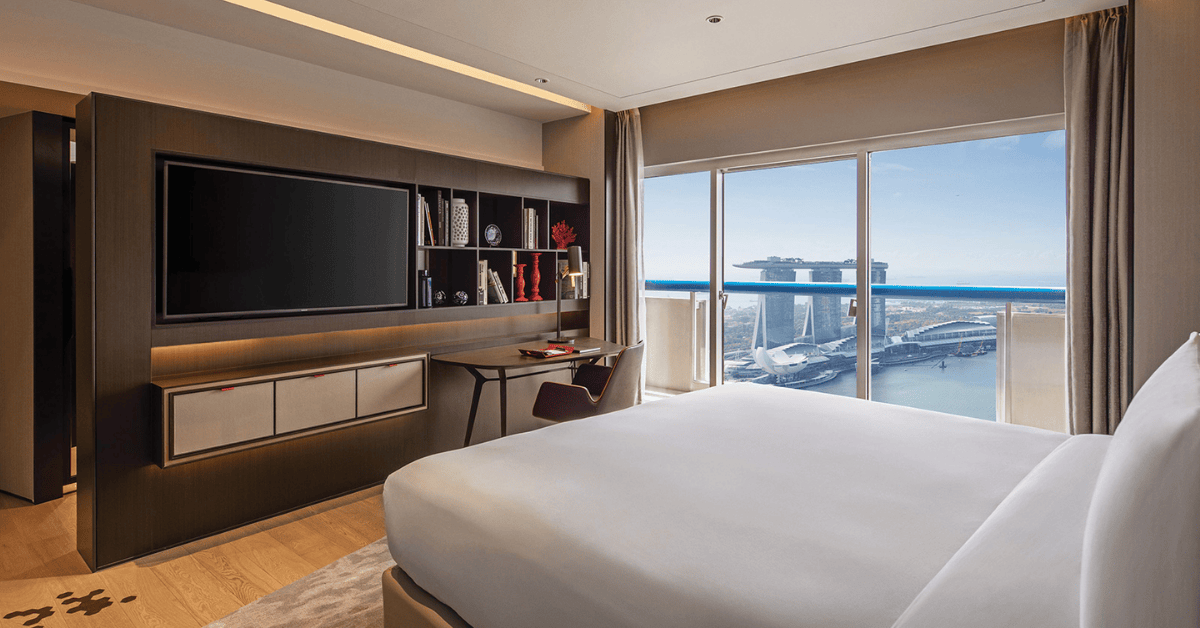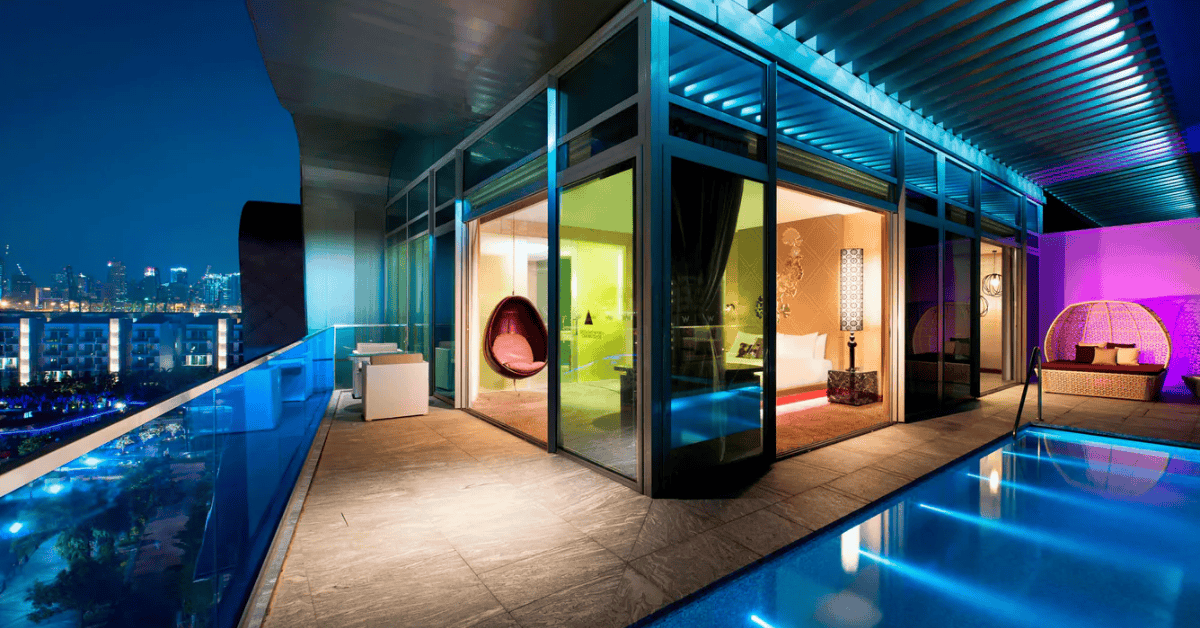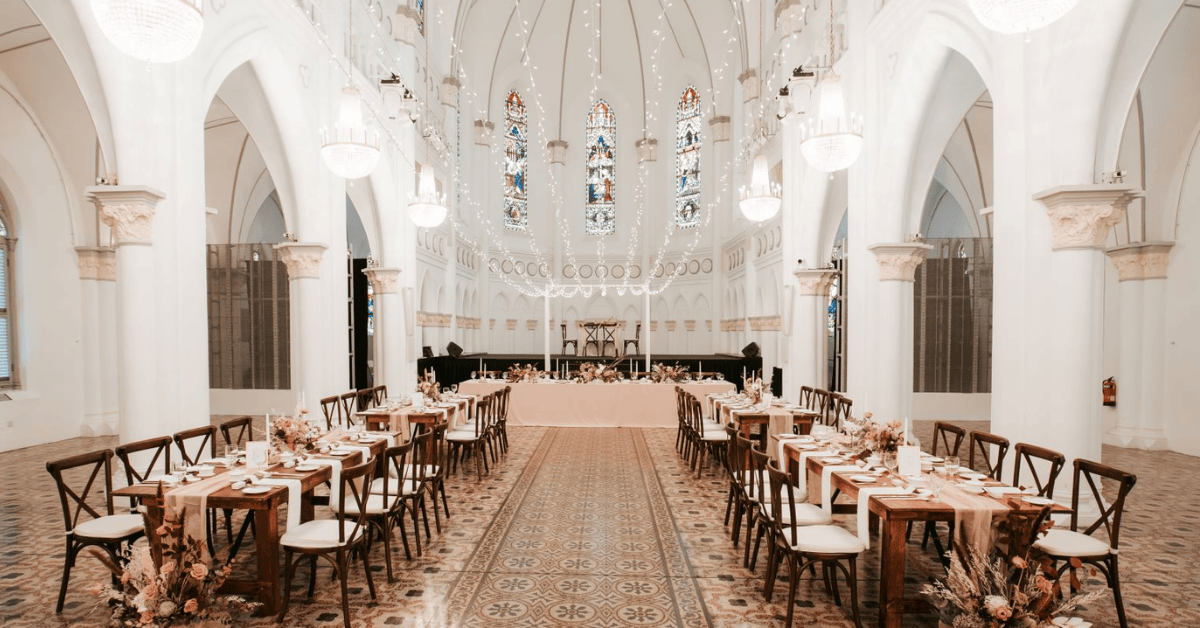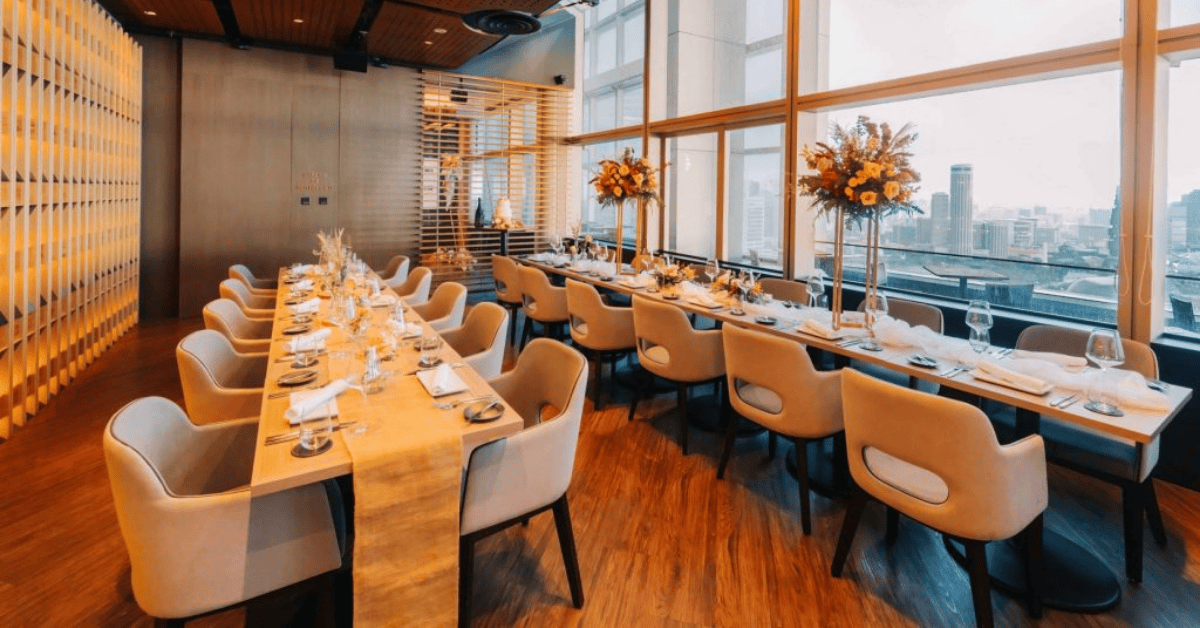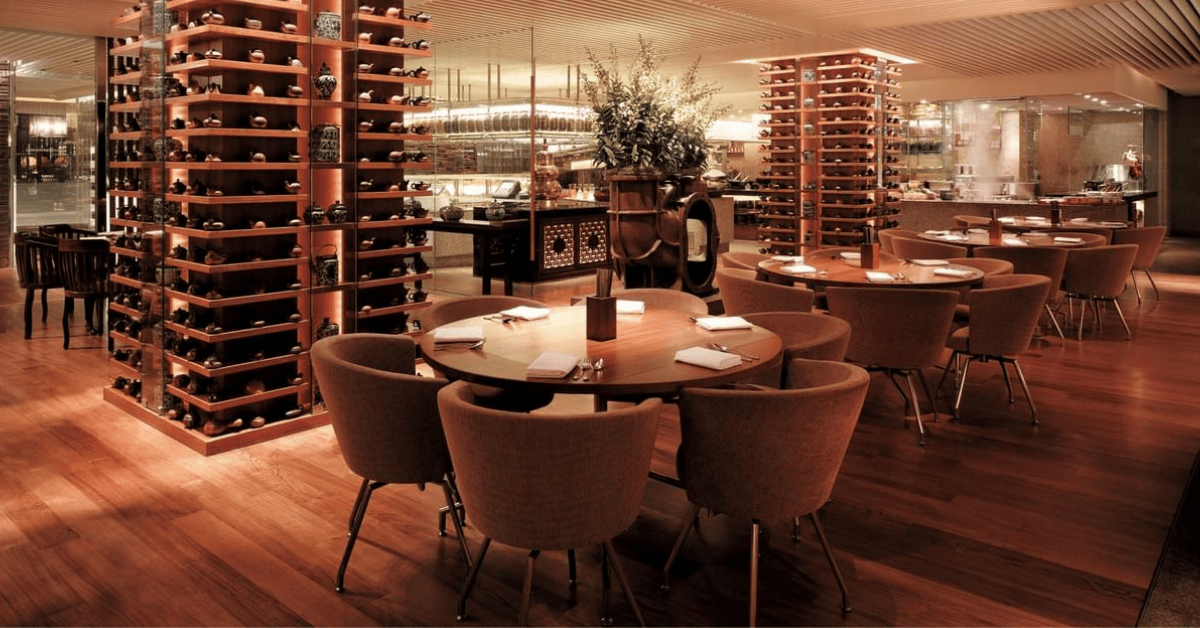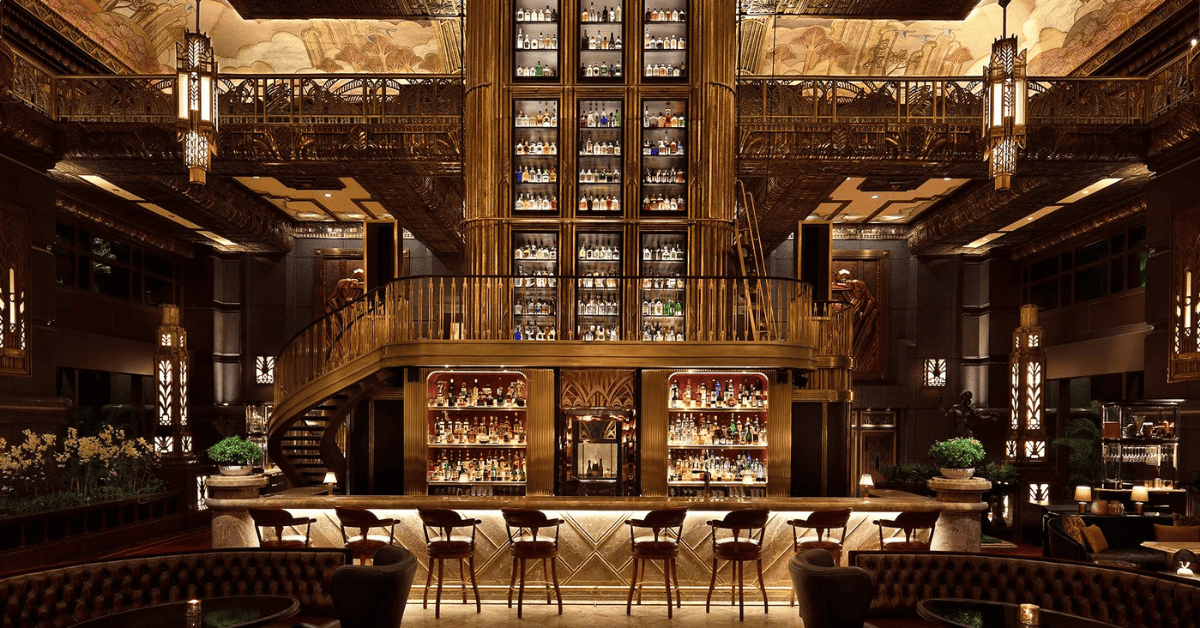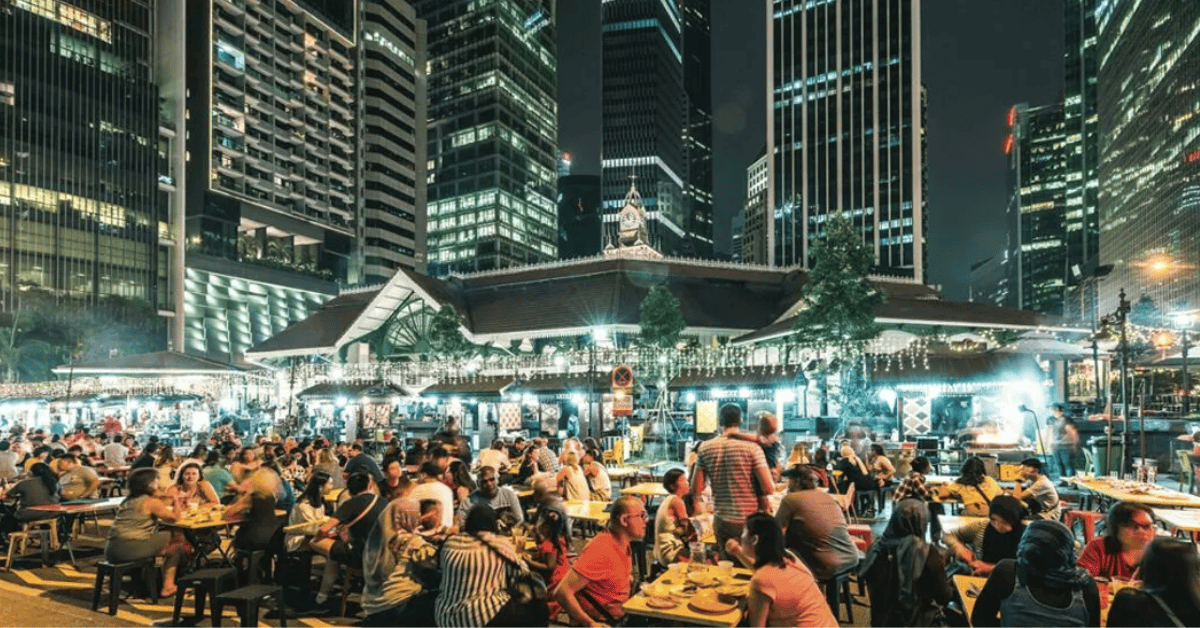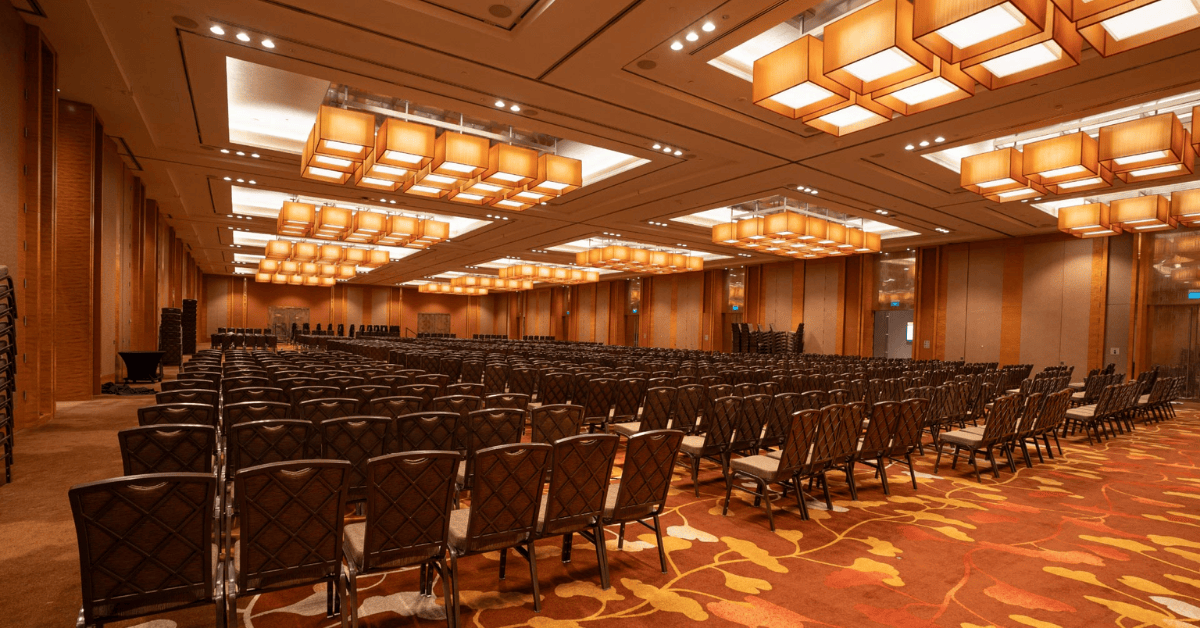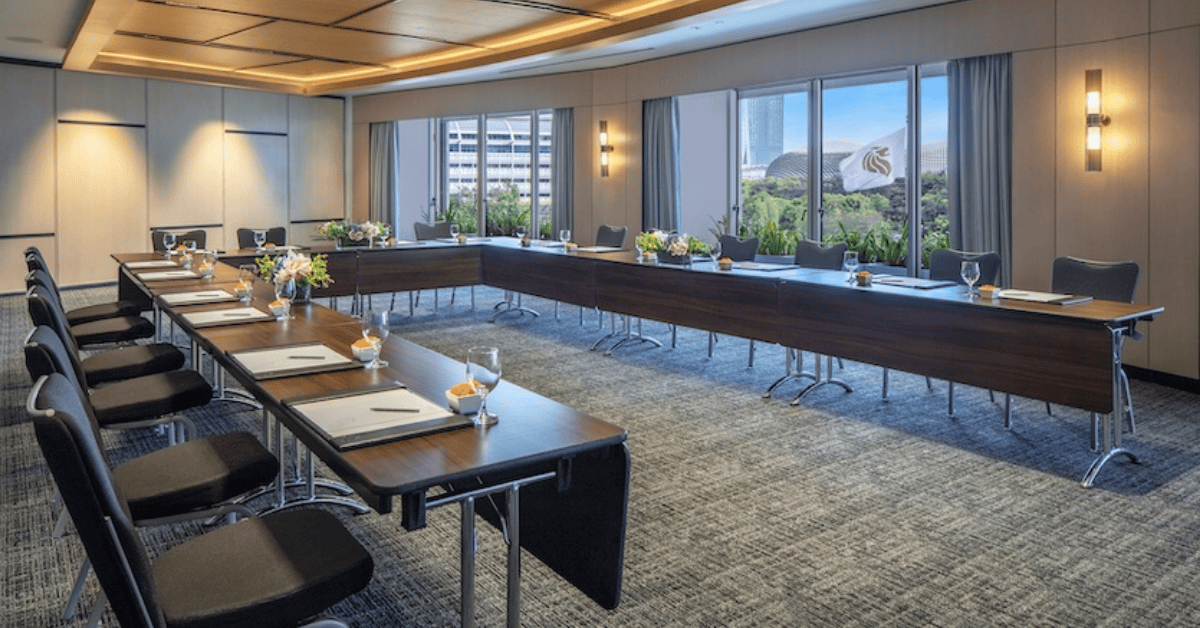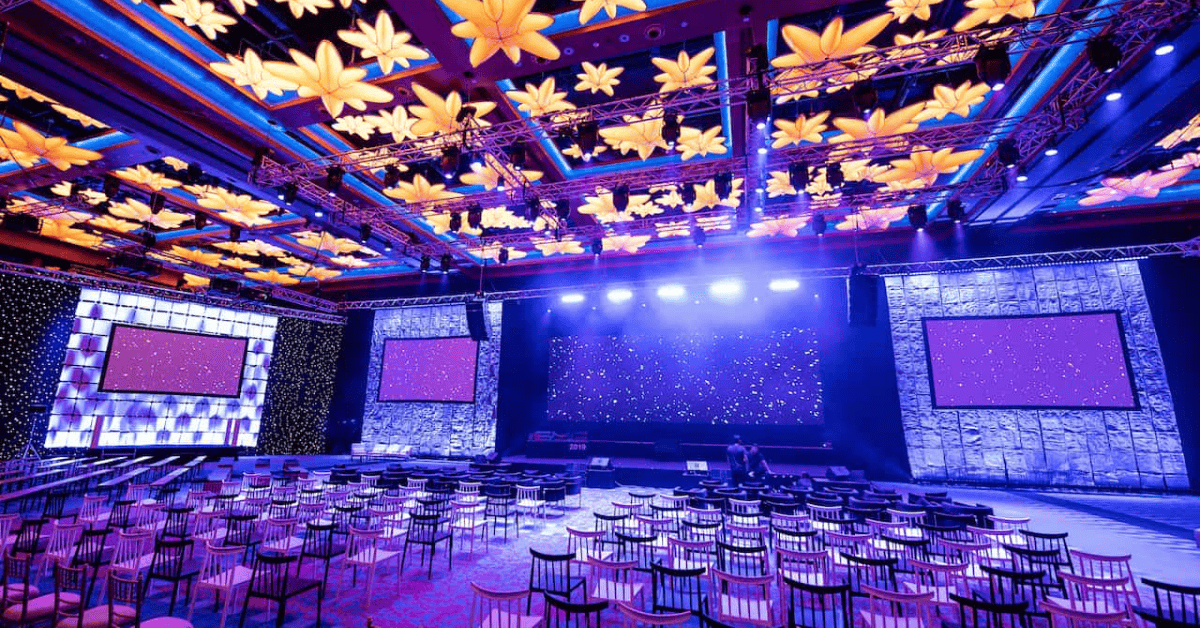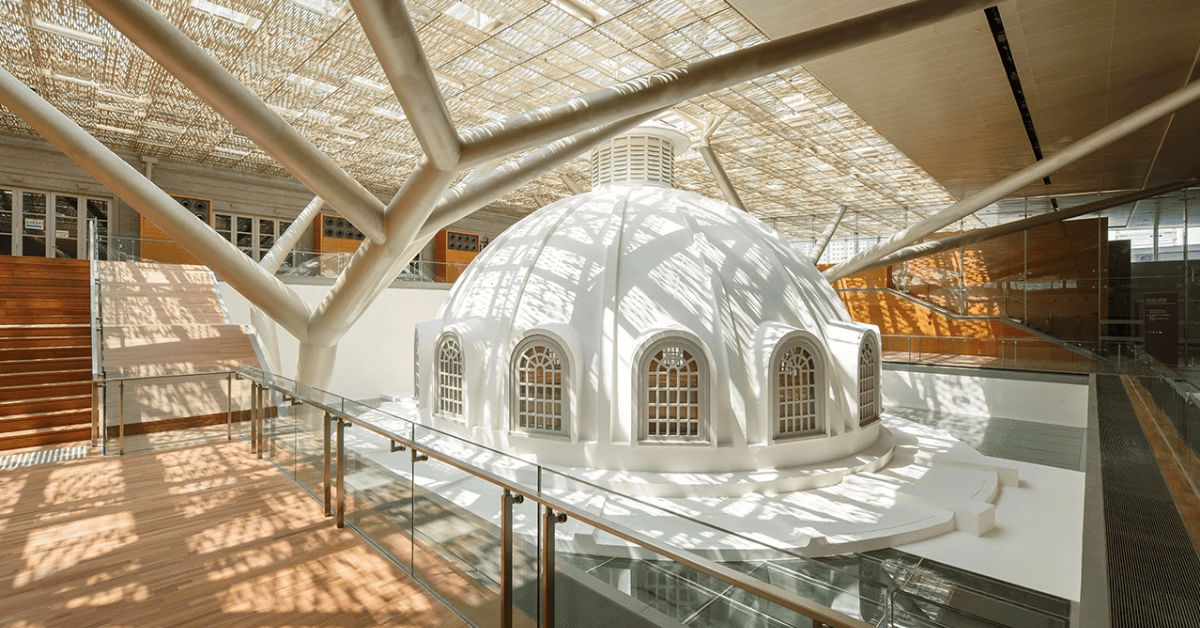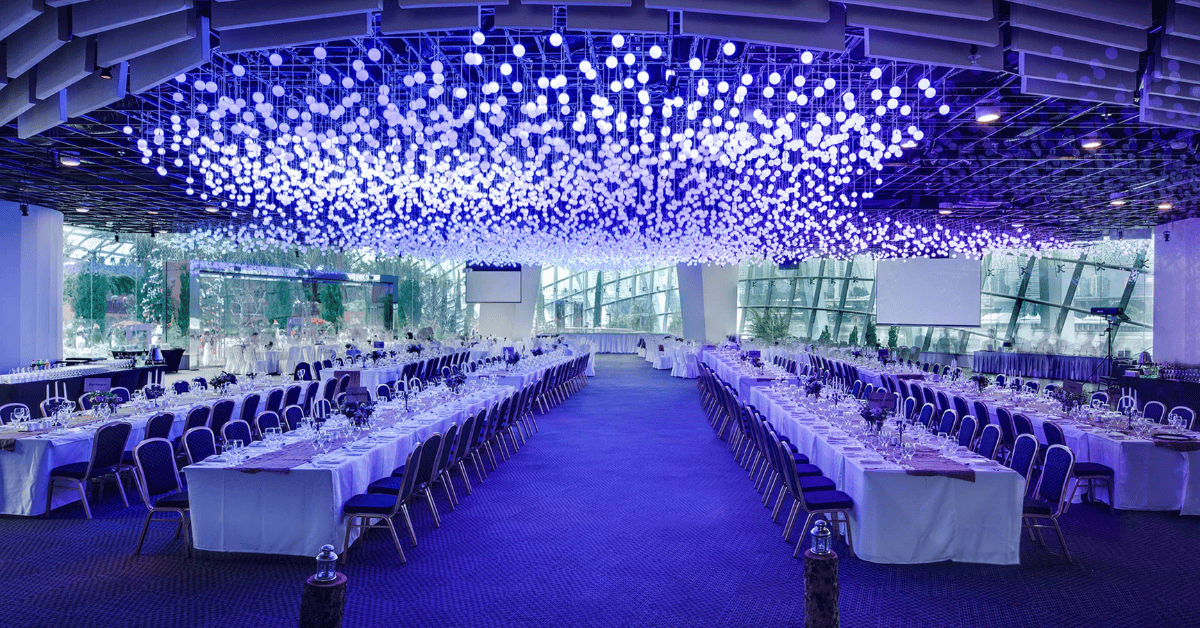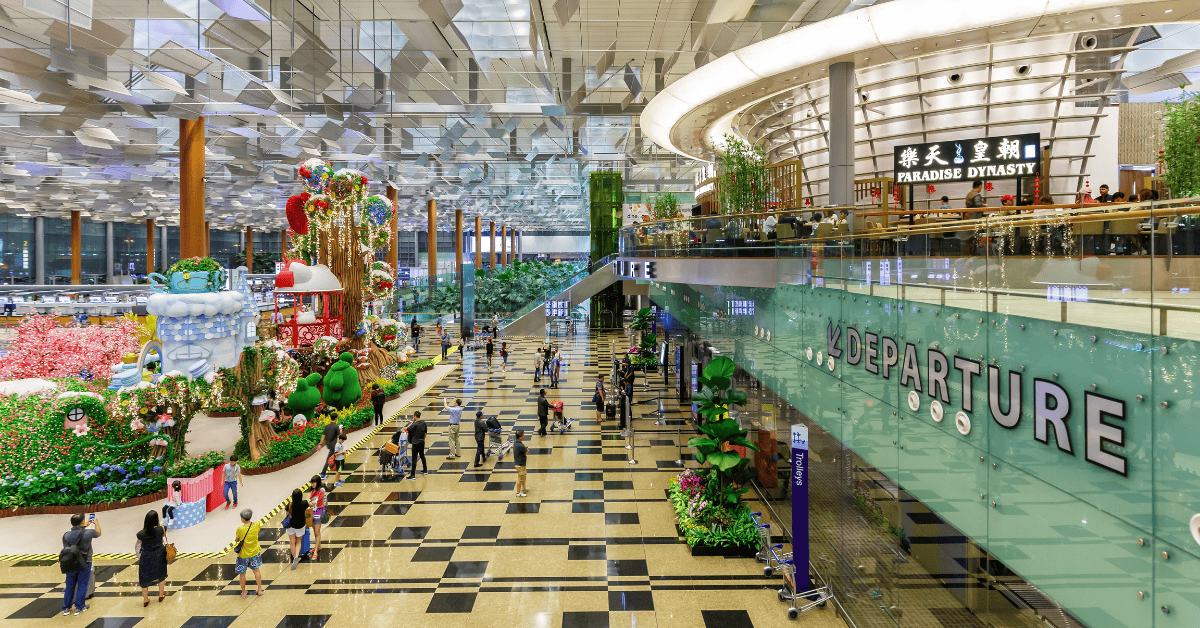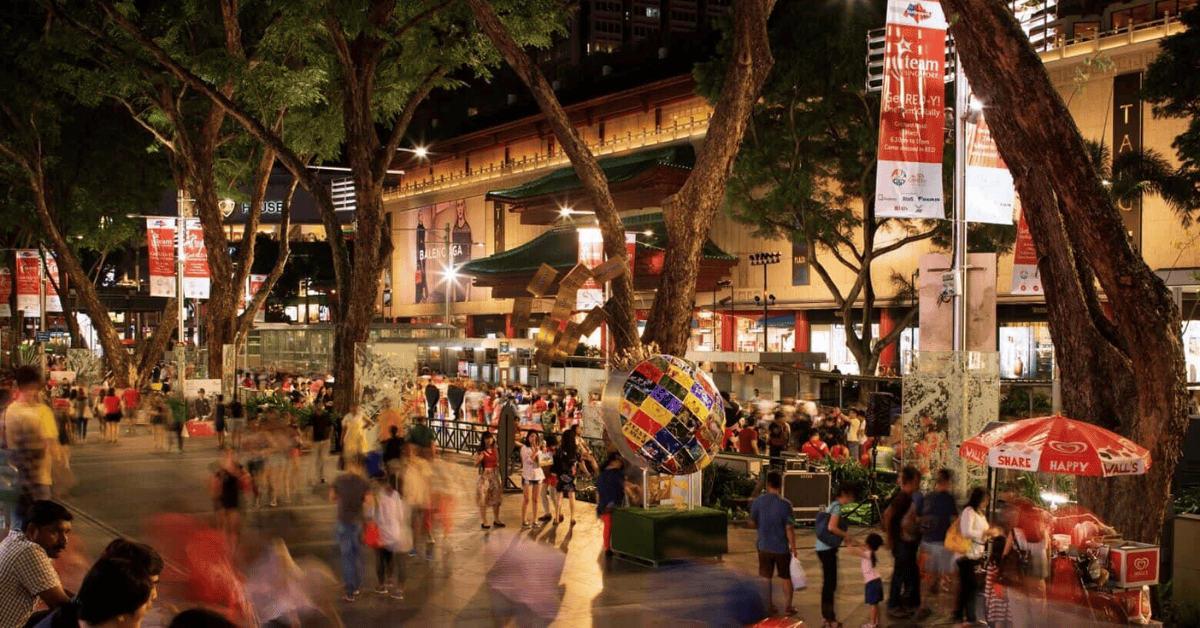
Hotel Pools That Make Your Event Feel Like a Vacation
There are plenty of reasons to book a hotel for a group event, be it business travel, family reunions, or celebrations. But let’s be honest: when it comes to keeping people entertained and relaxed between scheduled sessions or busy itineraries, nothing beats a great pool.
Not just any pool, though. We’re talking lazy rivers, rooftop decks, wave pools, cabanas, and private event-ready spaces. These are the hotels where the pool isn’t just a perk — it’s a centerpiece.
Below, we dive into (pun intended) some of the best group-friendly hotels across the U.S. with over-the-top pools and plenty of space for meetings or a round of margaritas — or both!
Hilton Anatole – Dallas, TX
JadeWaters Resort Pool Complex
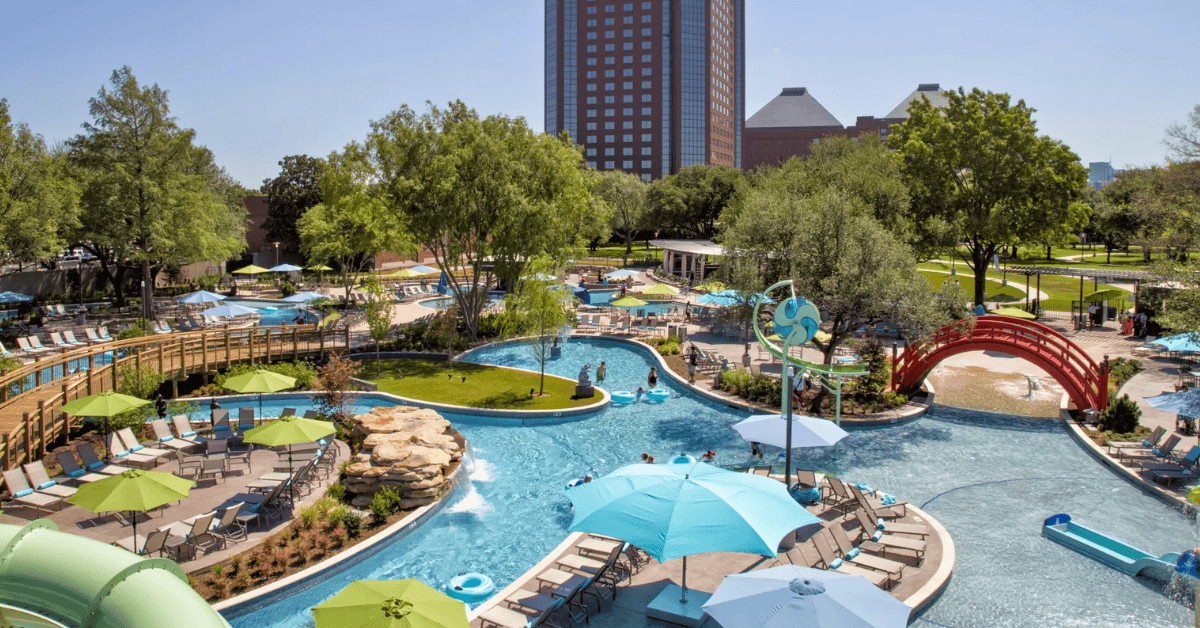
In the heart of Dallas, the Hilton Anatole blends business with big-time fun. It’s a serious convention hotel with over 600,000 square feet of event space, but it doesn’t take itself too seriously thanks to its JadeWaters pool complex.
This resort-style outdoor area includes:
-
- A 630-foot lazy river that’s perfect for a mid-afternoon float
- Two 180-foot winding water slides
- A family-friendly activity pool
- A quieter leisure pool with a swim-up bar
- Cabanas and daybeds available for rent
Groups can also rent out sections of the pool deck for private events, turning a work trip into something that feels more like a resort retreat.
Why it’s great for groups: You get the full amenities of a large conference hotel plus a waterpark on-site. The pool offers the perfect way to unwind, socialize, or host a casual evening reception.
Mandalay Bay – Las Vegas, NV
11-Acre Aquatic Playground on the Strip

Vegas is known for doing everything bigger, and Mandalay Bay is no exception. Alongside its massive convention center and luxury resort, is Mandalay Bay Beach,an 11-acre pool complex that’s basically an oasis in the desert.
What makes it special:
-
- A giant wave pool with a real sand beach (yes, a beach in Vegas!)
- A winding lazy river that loops through lush landscaping
- Multiple pools for lounging, splashing, or people-watching
- Dozens of shaded cabanas and rentable bungalows that can hold up to 12 guests
- Event-ready spaces like Daylight Beach Club, which can be reserved for private parties or nighttime events
This is the kind of pool scene that keeps people talking long after the conference wraps.
Great Wolf Lodge – Wisconsin Dells, WI
Indoor Waterpark Adventure Built for Families & Fun

If your group includes kids (or just grown-ups who act like kids), the Great Wolf Lodge in Wisconsin Dells is practically guaranteed to be a hit.
This 76,000 square foot indoor waterpark resort includes:
-
- Multi-level water slides and raft rides
- Wave pool and lazy river
- Hot tubs for the adults
- On-site arcades, restaurants, and group dining areas
- Suites built for groups and multi-generational families of up to 6 guests
- 8,419 square feet of meeting space and conference rooms with a separate entrance and parking
And the best part? It’s open year-round, so you don’t have to plan around the weather.
There are more than 20 Great Wolf Lodge locations across North America — including Grapevine, TX, Scottsdale, AZ, and Garden Grove, CA — all offering similar attractions and group-ready setups.
The William Vale – Brooklyn, NY
New York’s Longest Rooftop Pool (and Killer Skyline Views)
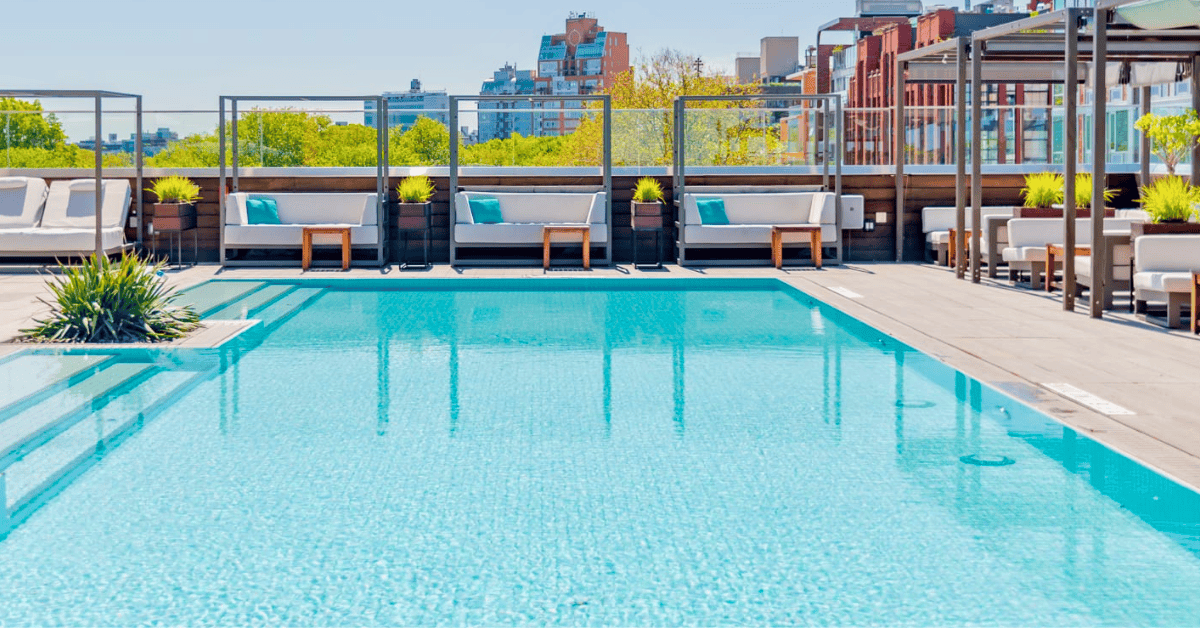
Looking for a pool with a view? Head to The William Vale in Williamsburg, Brooklyn, home to the longest outdoor hotel pool in NYC.
What makes it so special?
While the hotel leans toward the boutique side, it still offers over 9,000 square feet of event space and easy access to Manhattan, making it a sleek choice for groups that want something more memorable than a boardroom.
Signia by Hilton Orlando Bonnet Creek– Orlando, FL
Sophistication with a Splash (and Golf Nearby)

Tucked inside the serene Bonnet Creek area just minutes from Walt Disney World, the Signia by Hilton Orlando Bonnet Creek offers a luxury experience without the noise and chaos of the theme park crowds. It’s an upscale option for groups who want a polished, stress-free environment with all the trimmings of a world-class resort.
The pool area is great for groups of all ages; perfect for unwinding after a day of meetings, family outings, or golf.
What you’ll find:
-
- A zero-entry resort pool lined with palms and plush loungers
- Private cabanas with personalized poolside service for up to six guests
- An award-winning family resort pool with a lazy river and waterslide
- A poolside Recreation Team leading arts & crafts activities and exciting games for the whole family
- An 18-hole championship golf course for tournaments or downtime
- Nearly 300,000 square feet of shared event space between the Waldorf and Hilton properties
This is a place where grown-up groups can relax in luxury, but families or celebration crews will still feel welcome and catered to. With plenty of open-air seating and sophisticated surroundings, it’s ideal for everything from milestone birthday trips to low-key incentive retreats.
Gaylord Opryland Resort – Nashville, TN
Indoor/Outdoor Water Fun at SoundWaves
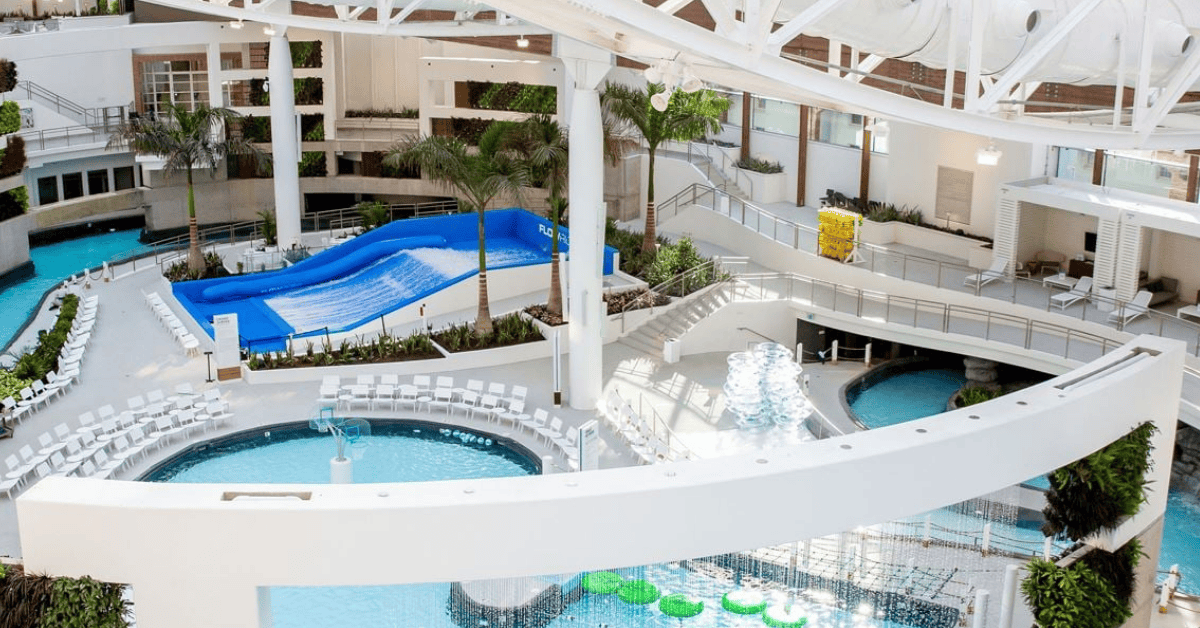
The Gaylord Opryland Resort & Convention Center is practically a city unto itself, famous for its sweeping atriums, indoor gardens, and enormous event space (more than 750,000 square feet, to be exact). But what surprises many guests is SoundWaves, its upscale, resort-style water attraction that’s open all year round.
Group-friendly features include:
-
- A thrilling FlowRider® surf simulator for wave-riders of all ages
- Lazy and rapid rivers, depending on your speed preference
- Six outdoor water slides, five indoor slides and splash zones for families, kids, and the kid-at-heart
- Adults-only indoor pools when you need a quieter escape
- Stylish private cabanas and seating areas
- Opportunities to reserve private sections of the waterpark for your group
SoundWaves strikes the perfect balance between fun and refinement, making it a great fit for family reunions, youth group retreats, birthday celebrations, and multi-generational vacations. Corporate groups looking to inject some fun into their agenda can also plan networking events or evening socials right inside the waterpark.
Omni Homestead Resort – Hot Springs, VA
A Southern Escape with Mountain Views

Tucked into the Allegheny Mountains, The Omni Homestead Resort & Spa is a timeless destination that blends Southern elegance with top-tier amenities for meetings and events. Your attendees can unwind in a sprawling outdoor pool with mountain views, splash down the water slides for a dose of fun between sessions, or gather in poolside cabanas for informal meetings and relaxed conversations.
Here’s what your group can look forward to:
-
- A two-acre water park with a 400-foot lazy river, two 100-foot water slides, and splash zones—great for family-friendly group events
- A year-round, adults-only Serenity Garden Pool fed by natural mineral springs
- Private cabanas for 6-8 guests, complete with your own dedicated server and pool attendant
- All-day access to the indoor pool, open 24/7 for maximum flexibility
With over 75,000 square feet of flexible meeting and event space, The Omni Homestead Resort easily handles corporate retreats, conferences, and incentive trips of up to 1,000 attendees.
The St. Regis Deer Valley – Park City, UT
A Blend of Alpine Elegance and Five-Star Service
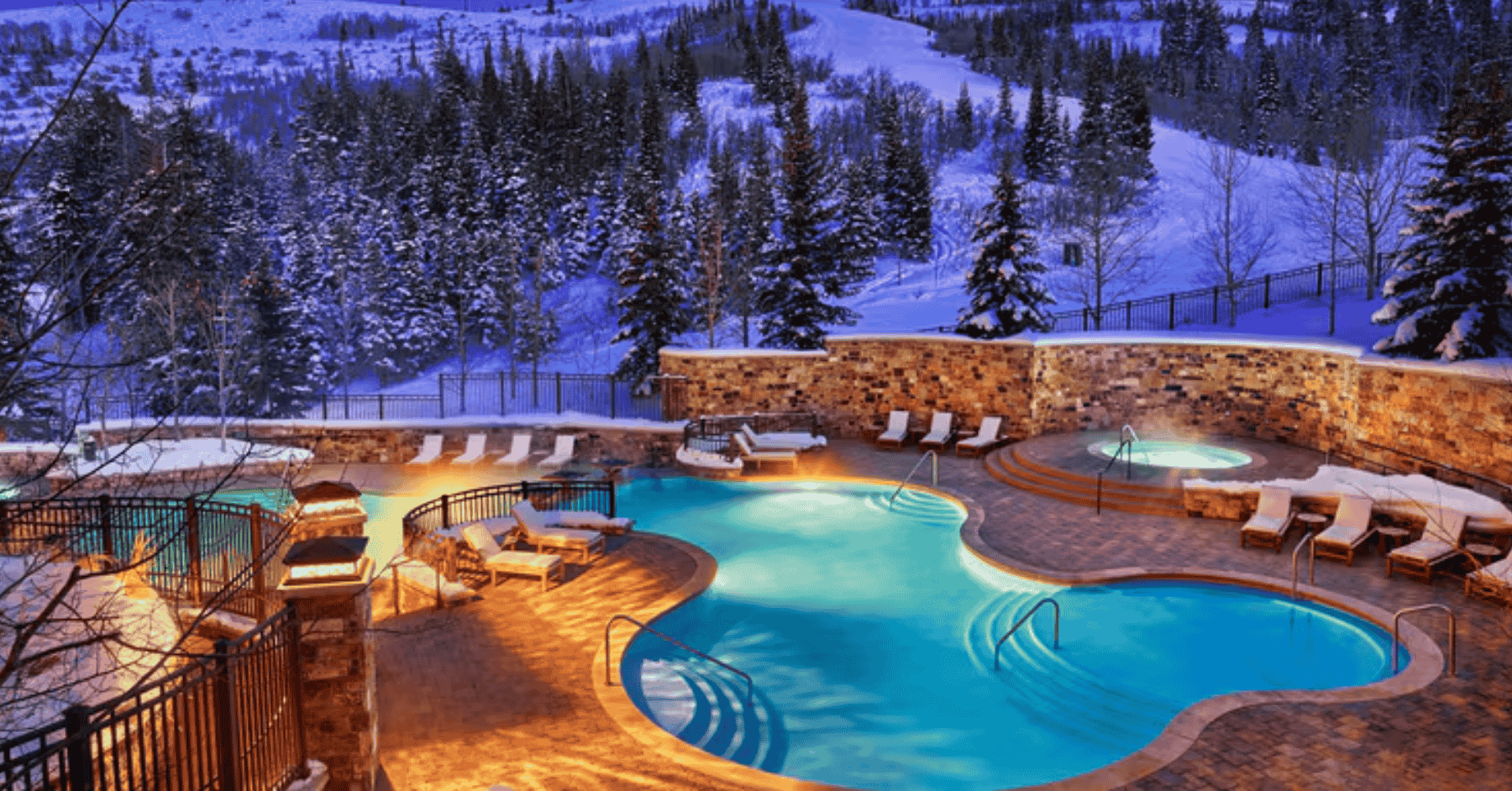
Where else can you take a warm swim while snow settles on the surrounding slopes? The St. Regis Deer Valley makes it possible thanks to a heated outdoor pool that’s open year-round, so your group can enjoy alpine luxury in any season.
Here’s what your group can look forward to:
-
- A heated, split-level infinity pool overlooking the slopes of Deer Valley
- Outdoor hot tubs for year-round relaxation—even in the snow
- Poolside fire features for cozy evening gatherings or après-meeting drinks
- Luxurious loungers and poolside food & beverage service
With more than 18,000 square feet of indoor and outdoor event space, this mountain resort makes hosting upscale events effortless. But it’s the poolside views and serene alpine atmosphere that make it memorable for attendees.
InterContinental San Diego – San Diego, CA
A Seaside Soak with Skyline Style
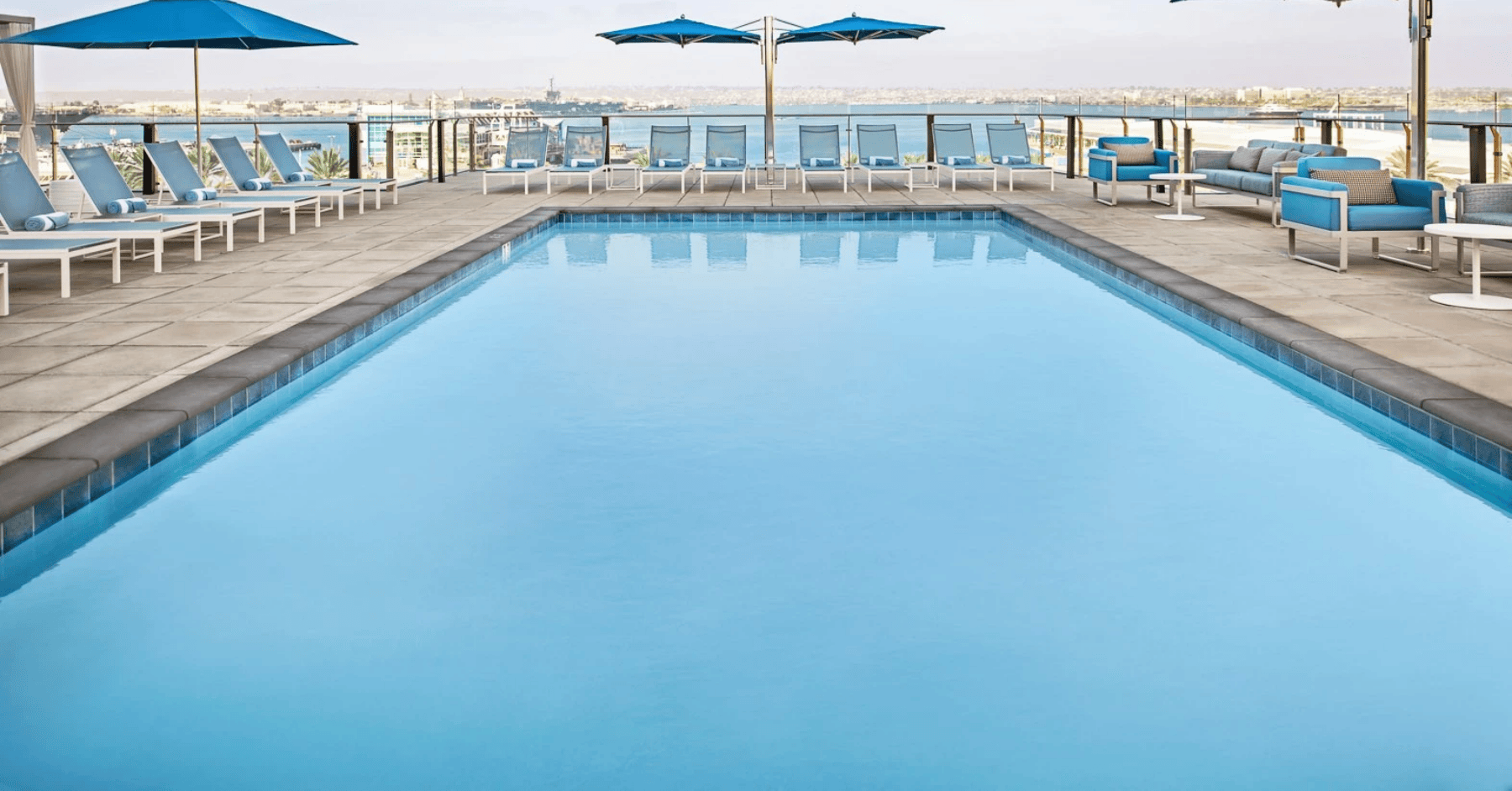
If you’re dreaming of waterfront views, ocean breezes, and sleek modern design, the InterContinental San Diego delivers. This coastal gem blends upscale amenities with a laid-back SoCal vibe, making it an excellent pick for groups that want a mix of elegance and easy access to everything downtown has to offer.
The fourth-floor Layover Rooftop Pool offers:
-
- A heated outdoor pool perfect for year-round lounging
- Cozy fire pits and lounge seating with panoramic views of San Diego Bay
- A spacious event-ready terrace for sunset receptions or private gatherings of up to 200 guests
- Walkable access to Little Italy, the Embarcadero, Seaport Village, the San Diego Convention Center and more
- Over 95,000 square feet of modern meeting and event space
The pool deck here isn’t enormous, but it’s beautifully designed and the setting can’t be beat. Groups love it for bachelorette weekends, small business off-sites, family celebrations, and creative retreats. It’s a property that feels like a reward in itself, whether your guests spend time poolside or use it as a base to explore San Diego’s waterfront culture.
Tips for Booking Pool-Friendly Hotels for Groups
If you’re serious about making the pool part of your group’s experience, keep these tips in mind:
-
- Ask about cabana rentals and reserved seating for your group
- Check availability for private pool deck events or receptions
- Make sure pool access is included in the group rate (some resorts require extra fees)
- Consider daytime downtime. A poolside break can be just as important as breakout sessions
- Use hotel photos and layout maps to gauge how group-friendly the pool areas actually are
And of course, keep seasonality in mind. An epic outdoor pool doesn’t do much good in January unless it’s in Florida, Vegas, or under a retractable roof.
Dive Into Better Group Planning with GroupSync
The right pool can turn a good group trip into a great one. It’s where conversations flow, downtime feels like a bonus, and memories happen naturally.
With GroupSync™ by Groups360, it’s easy to find hotels that offer more than just meeting space. Search and compare properties with standout pools, cabana rentals, event-friendly decks, and everything else your group needs to relax, connect, and have fun.
GroupSync™ helps event planners save up to 60% off hotel room rates
Get access to the best rates with risk-free cancellation.

